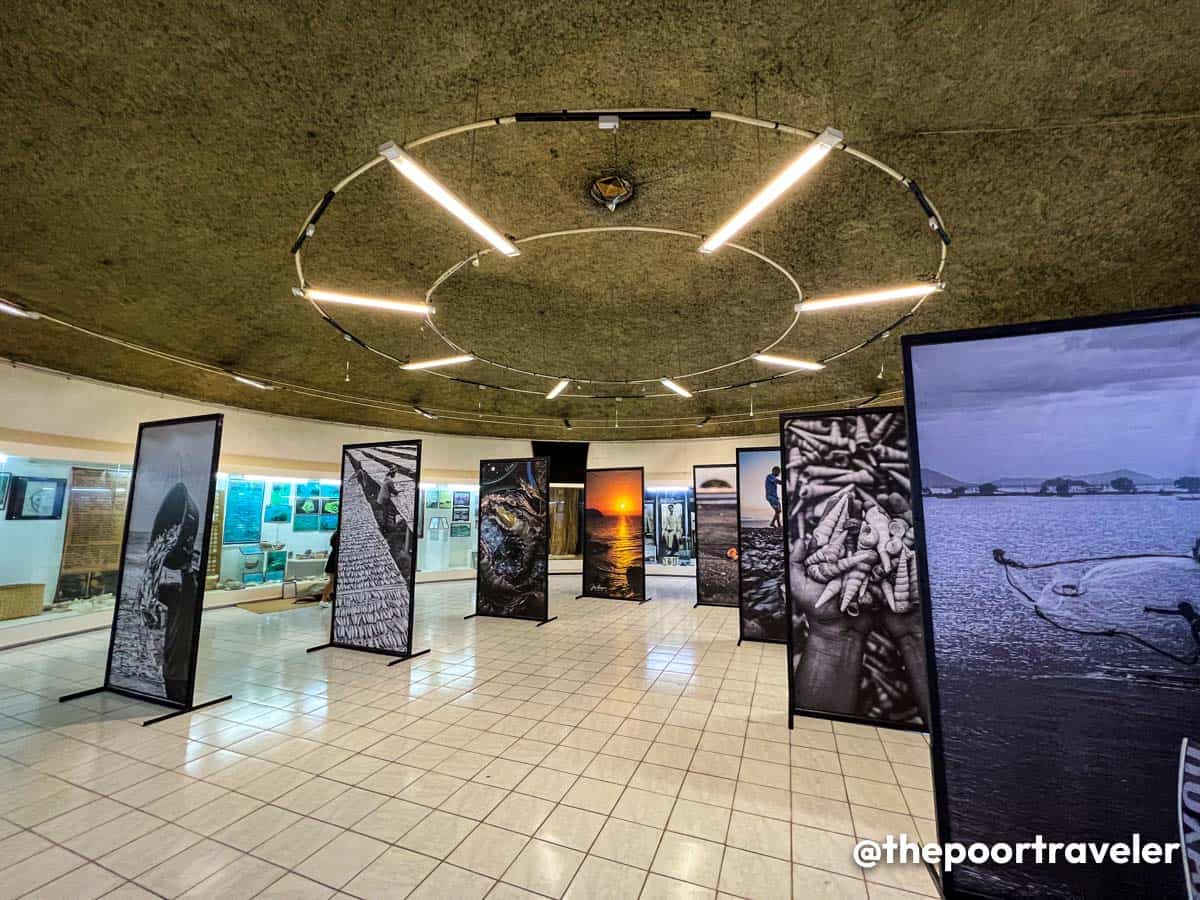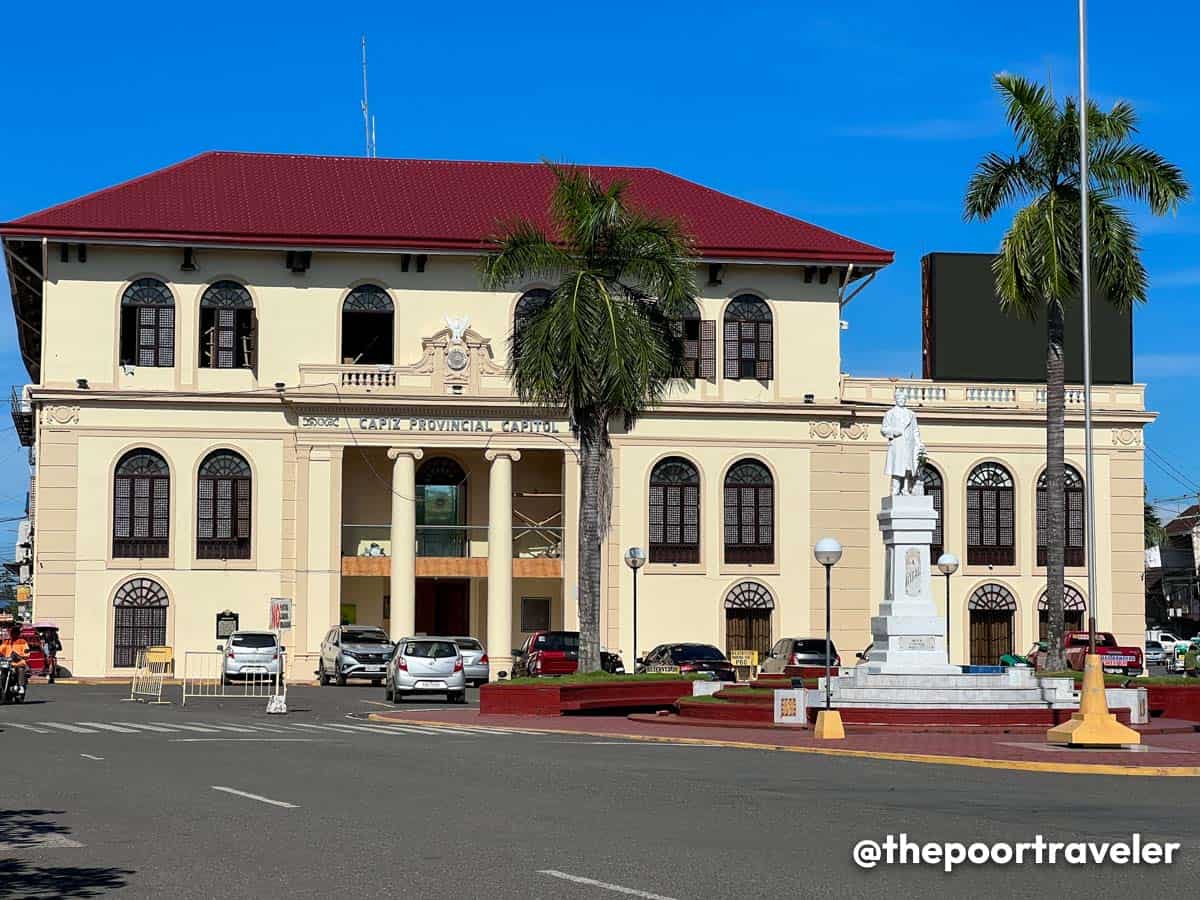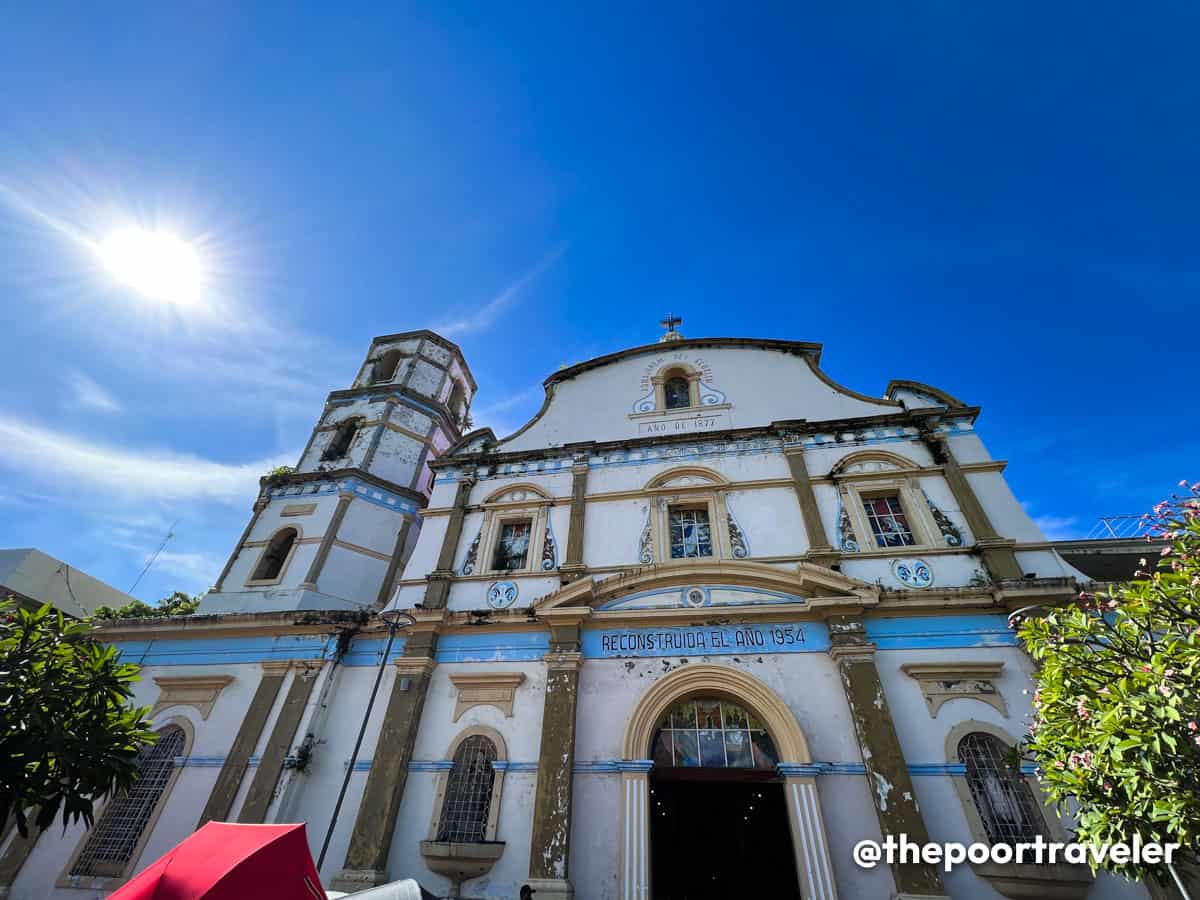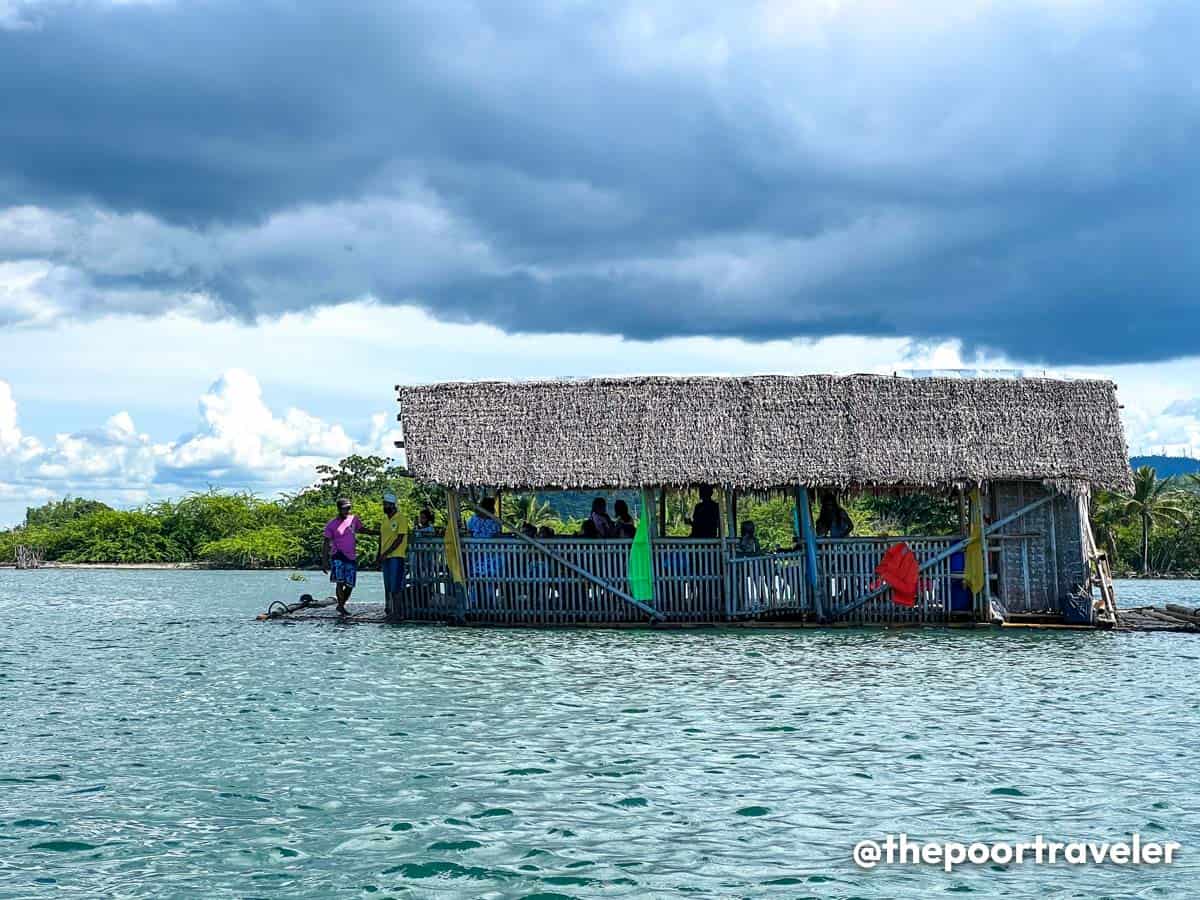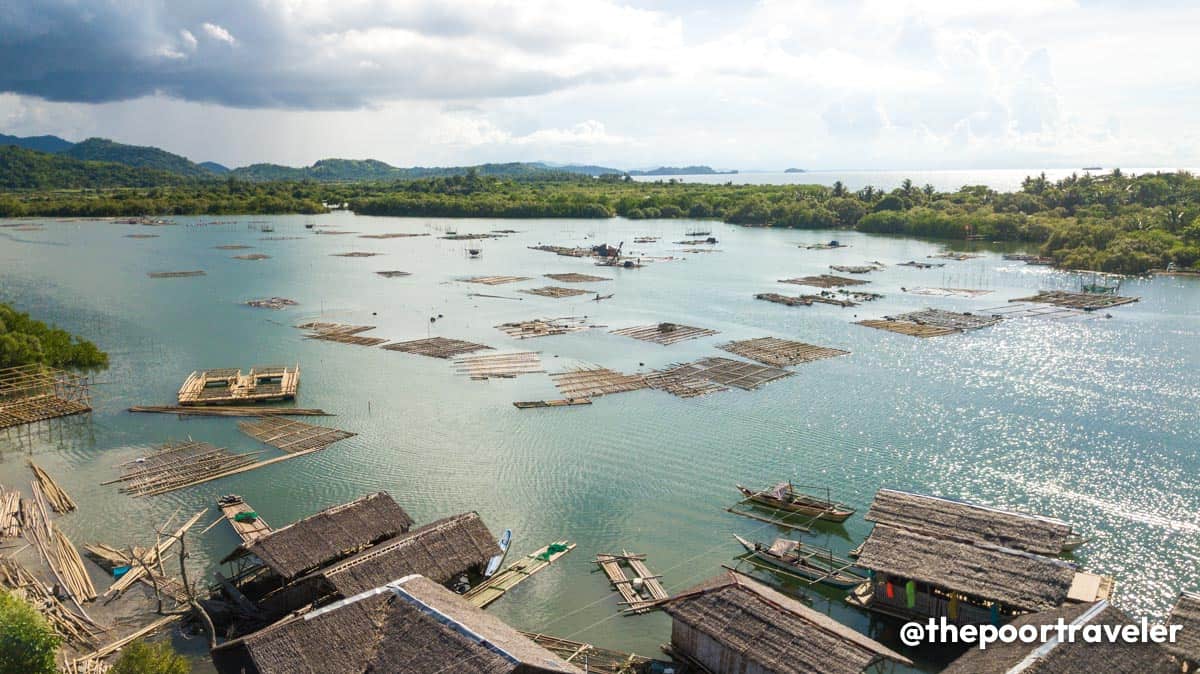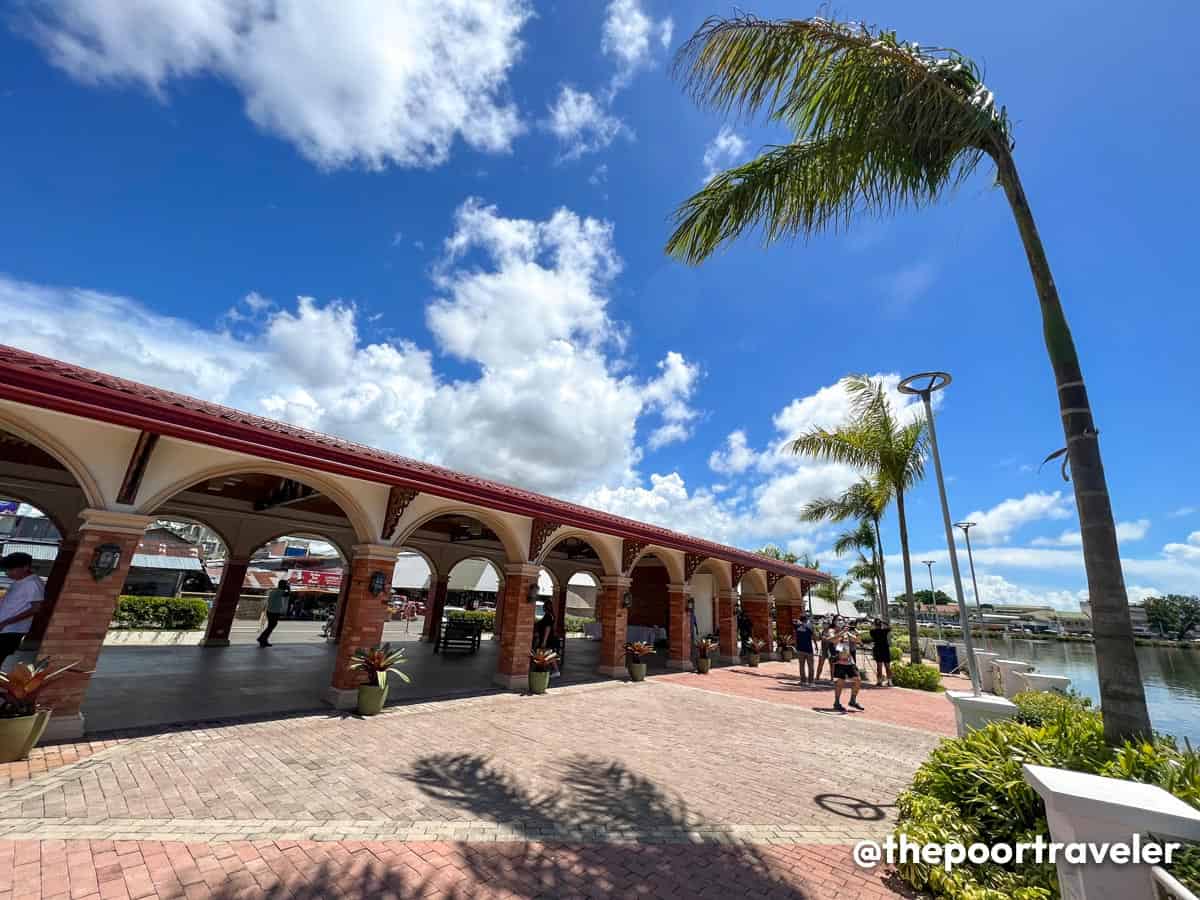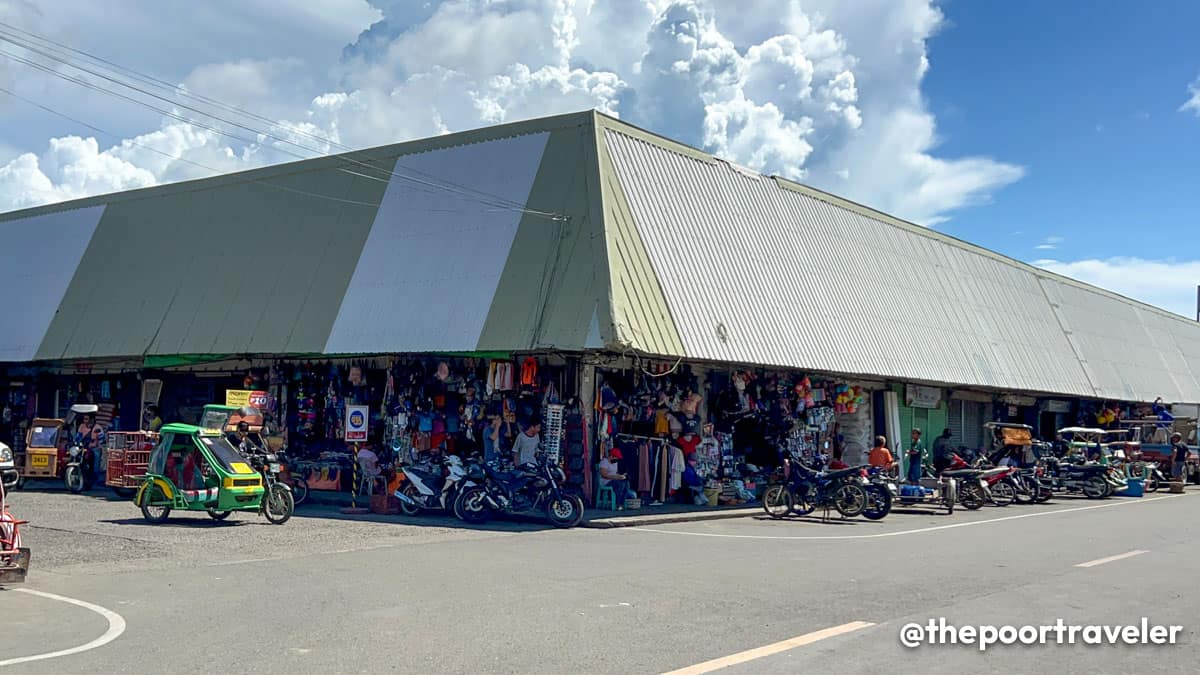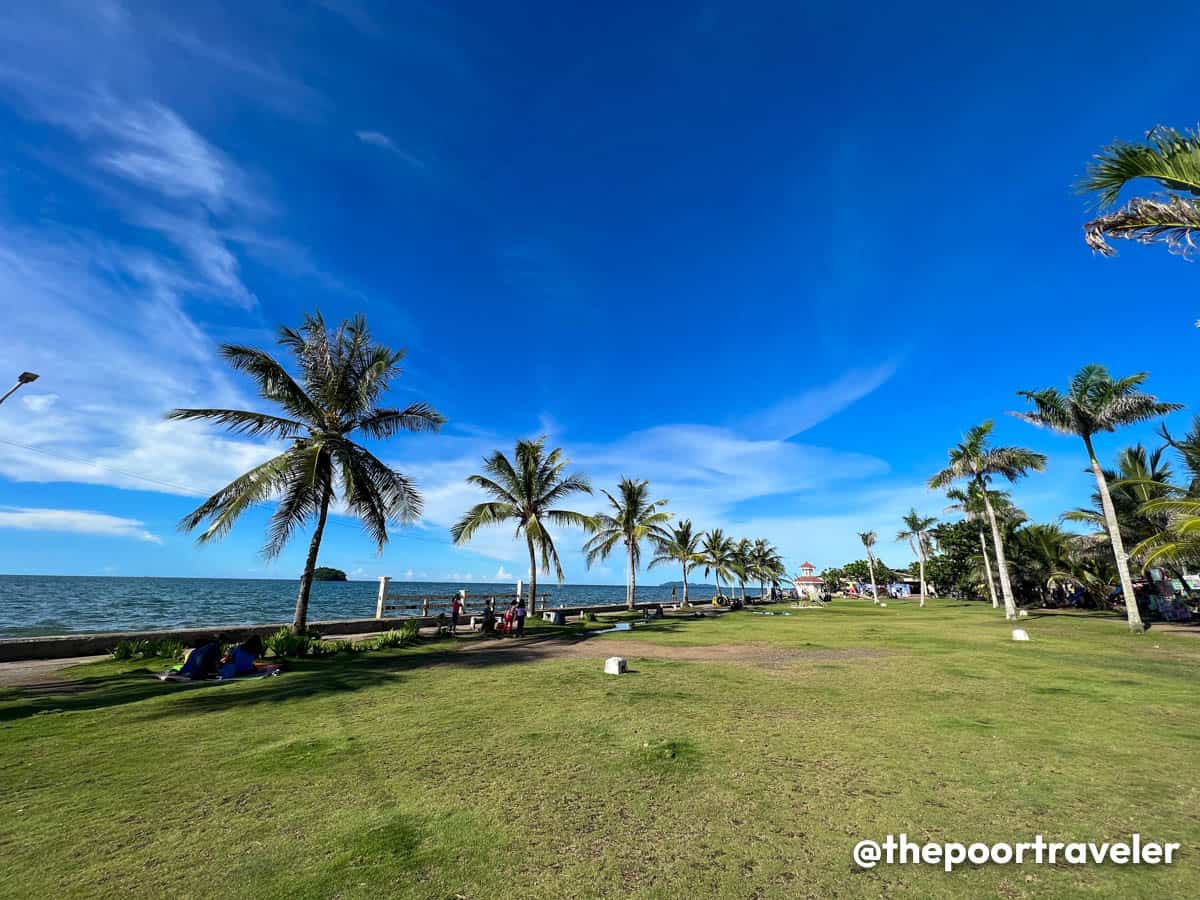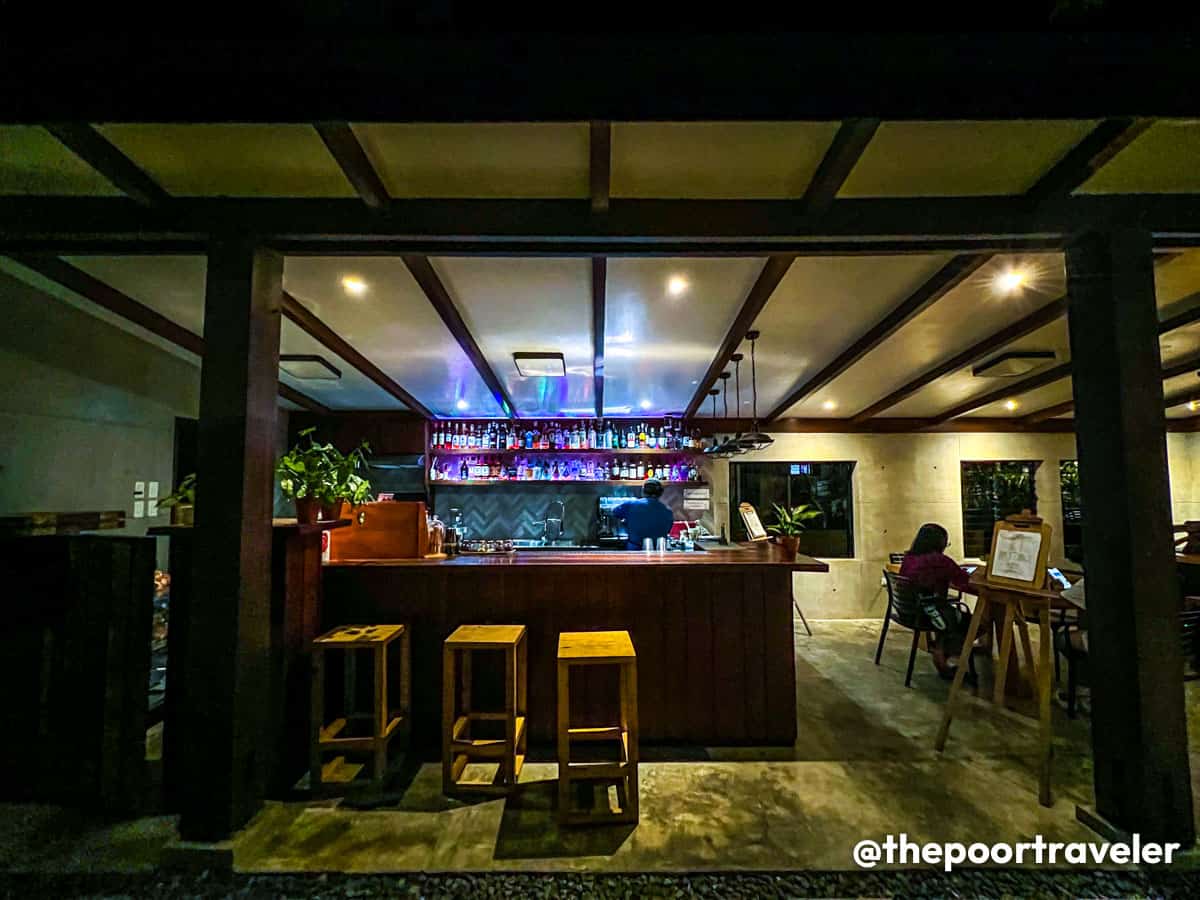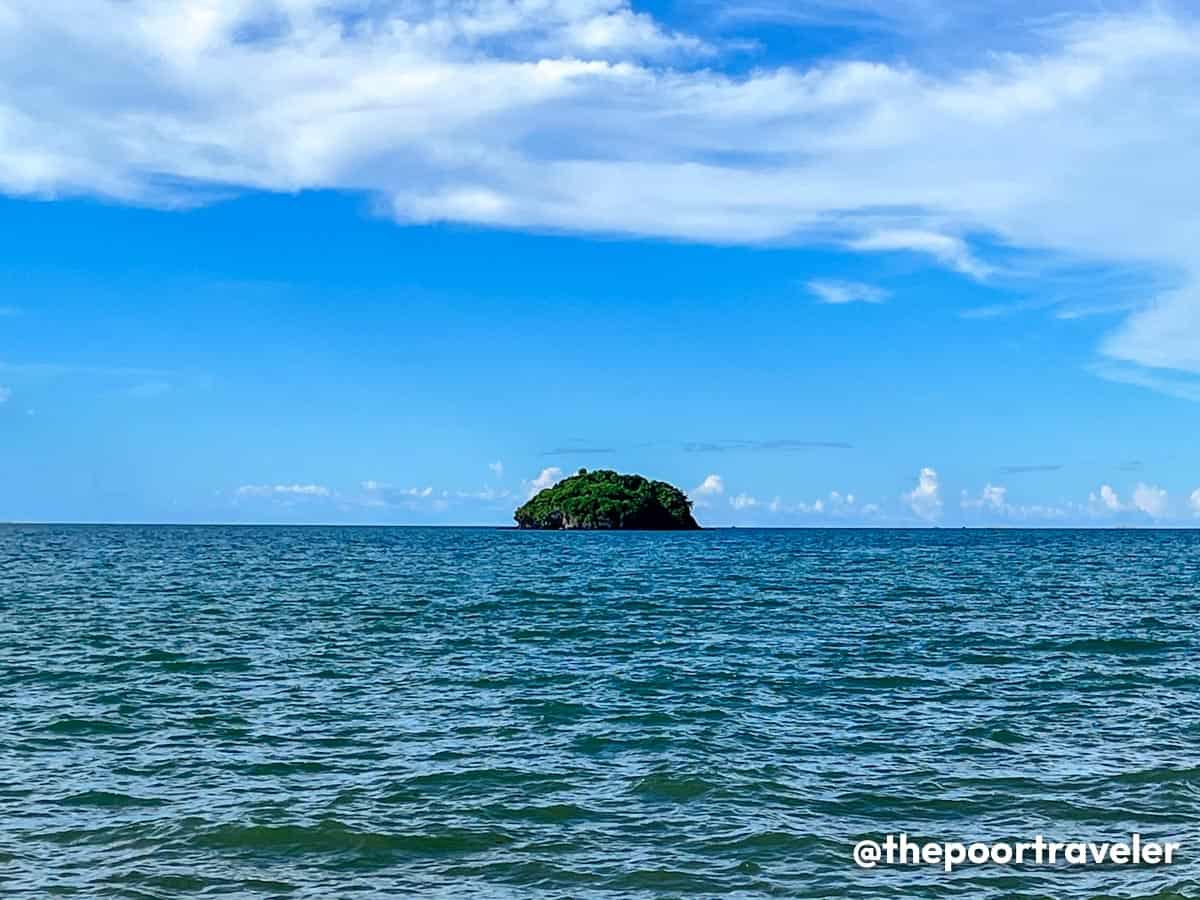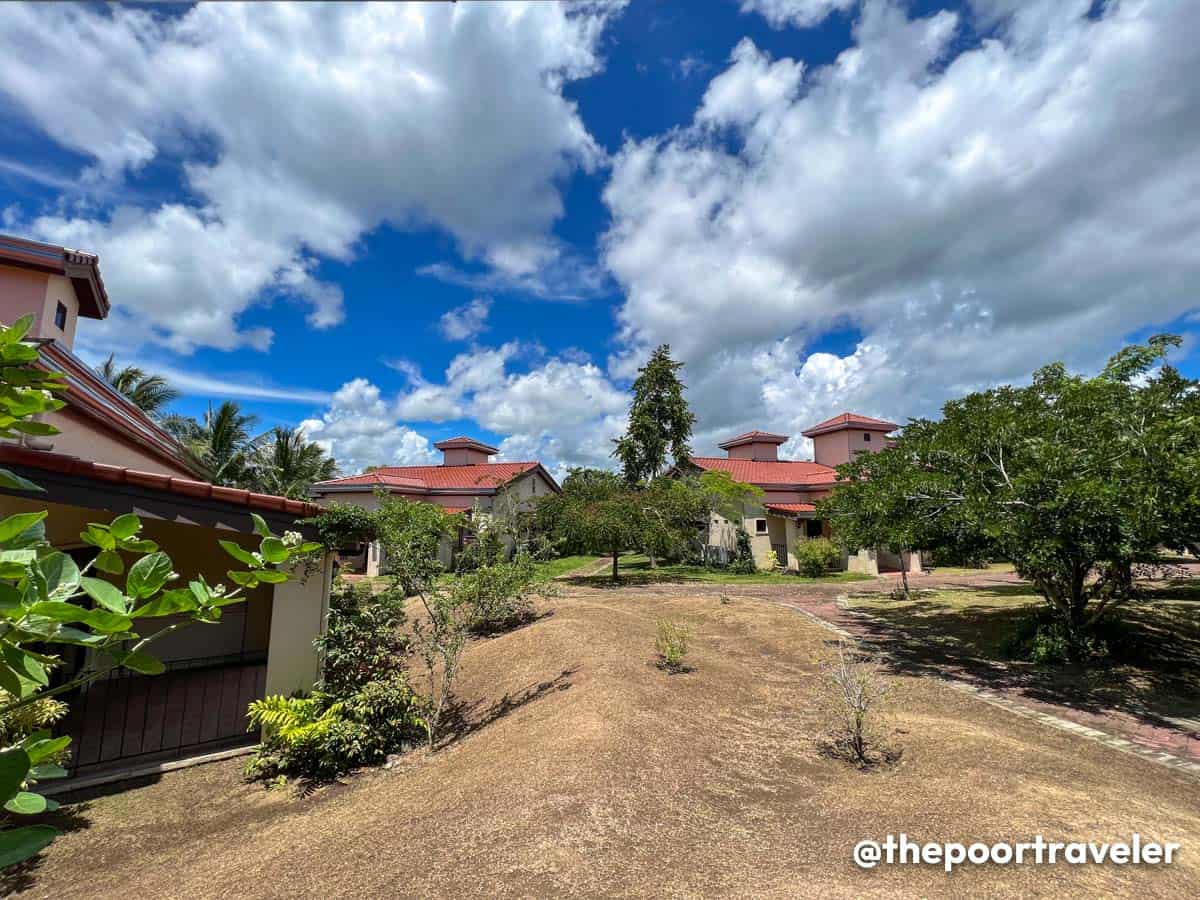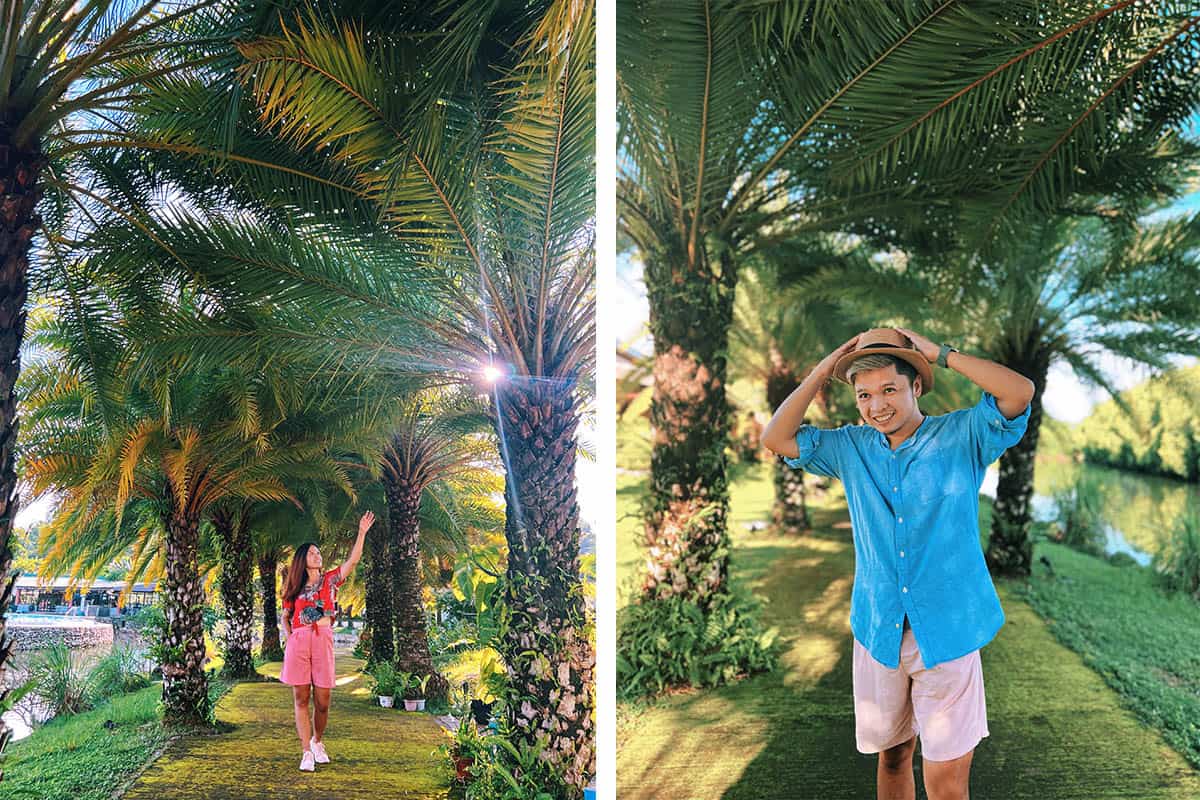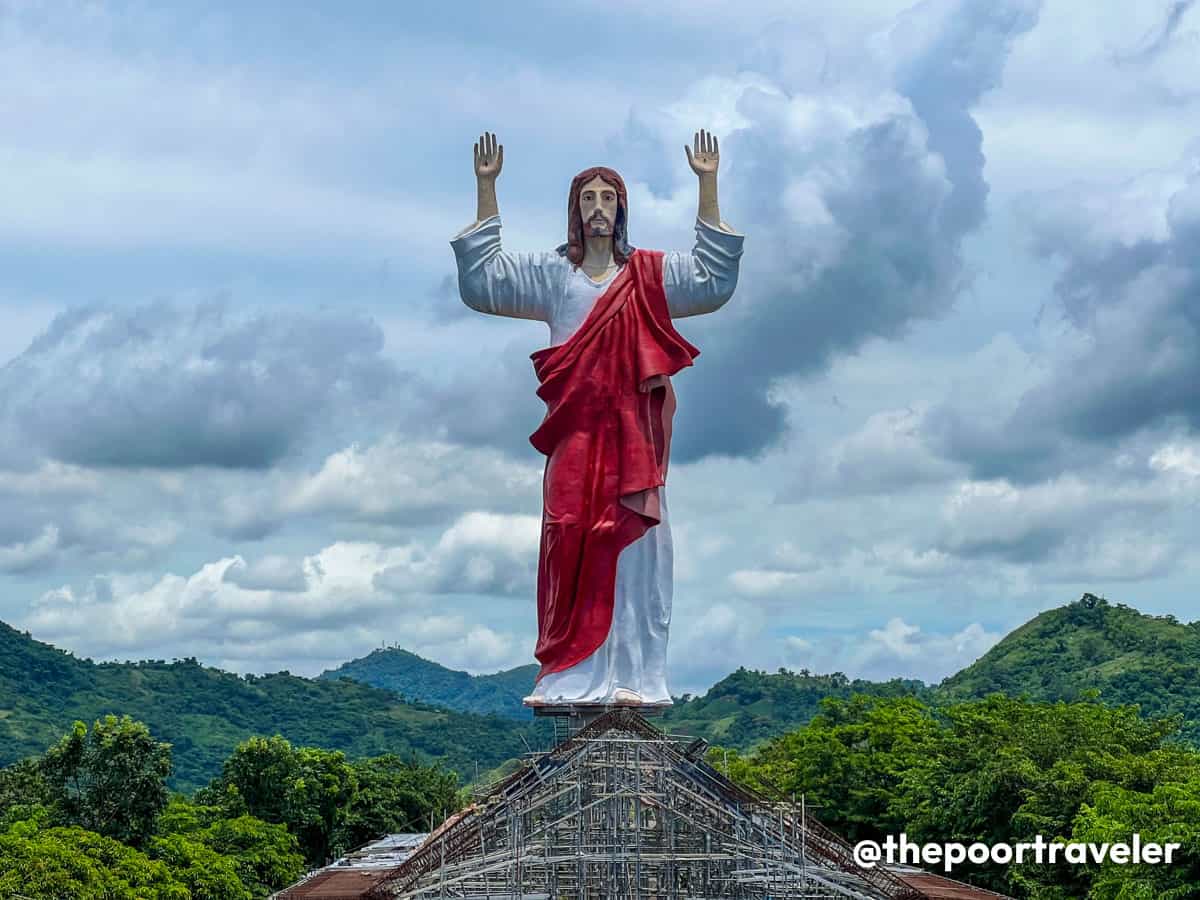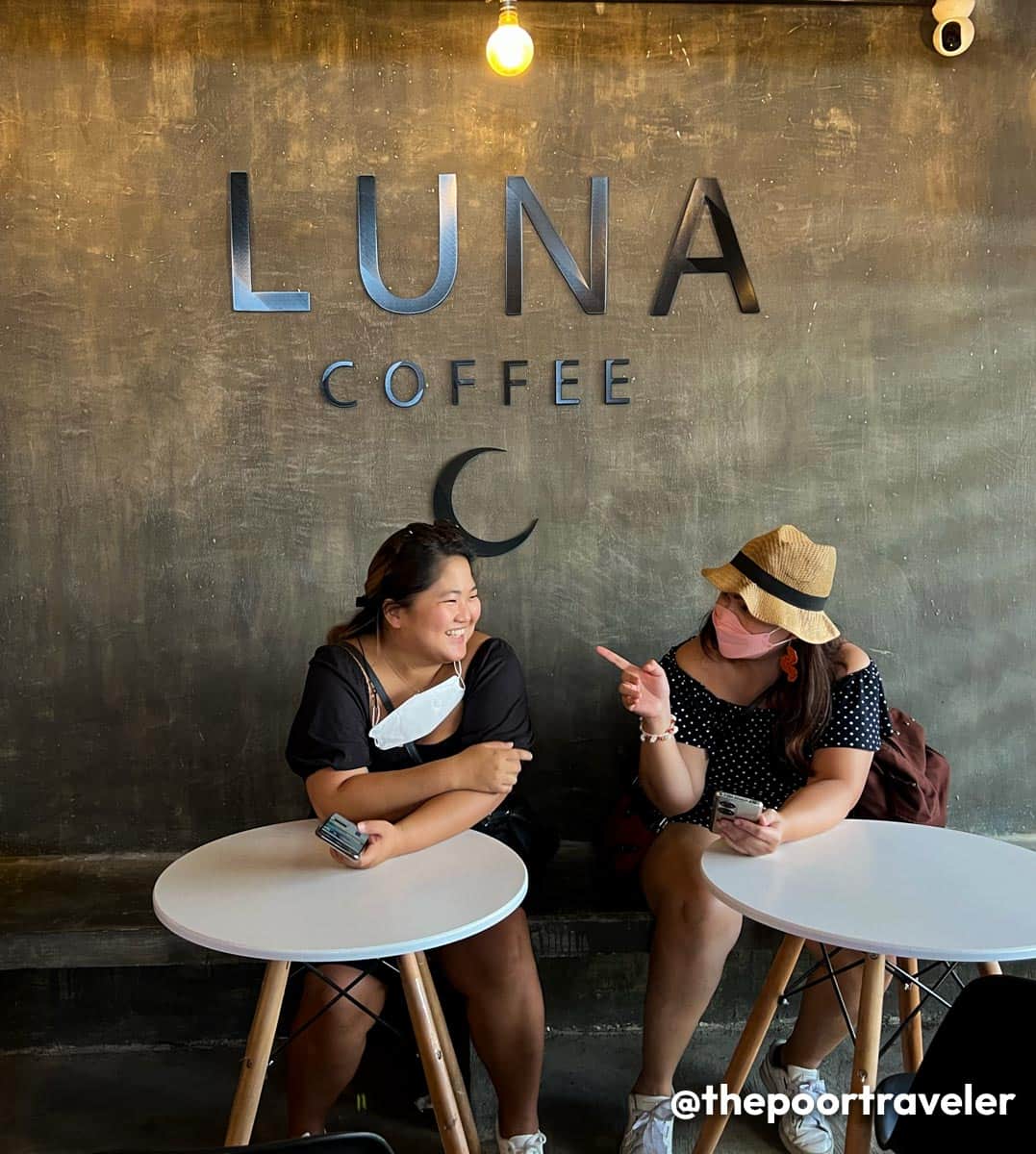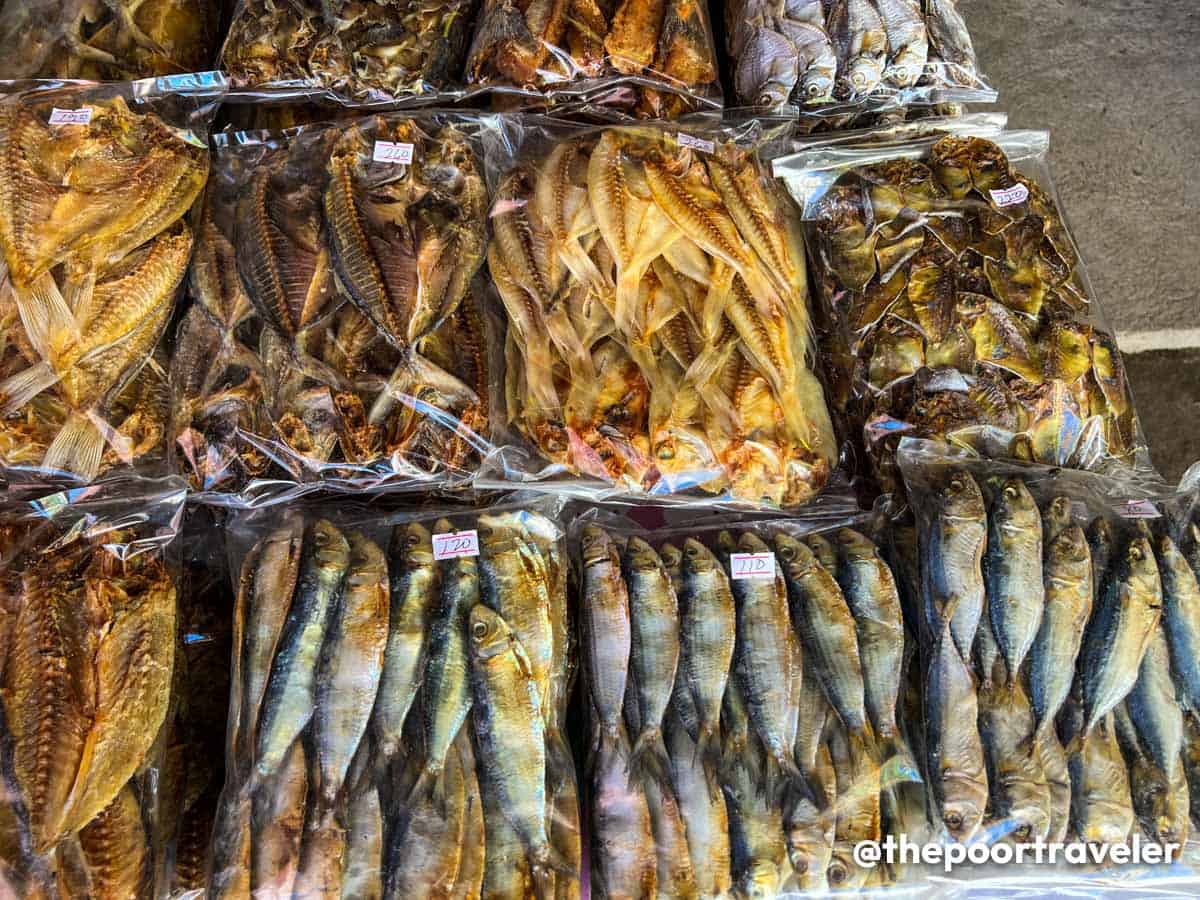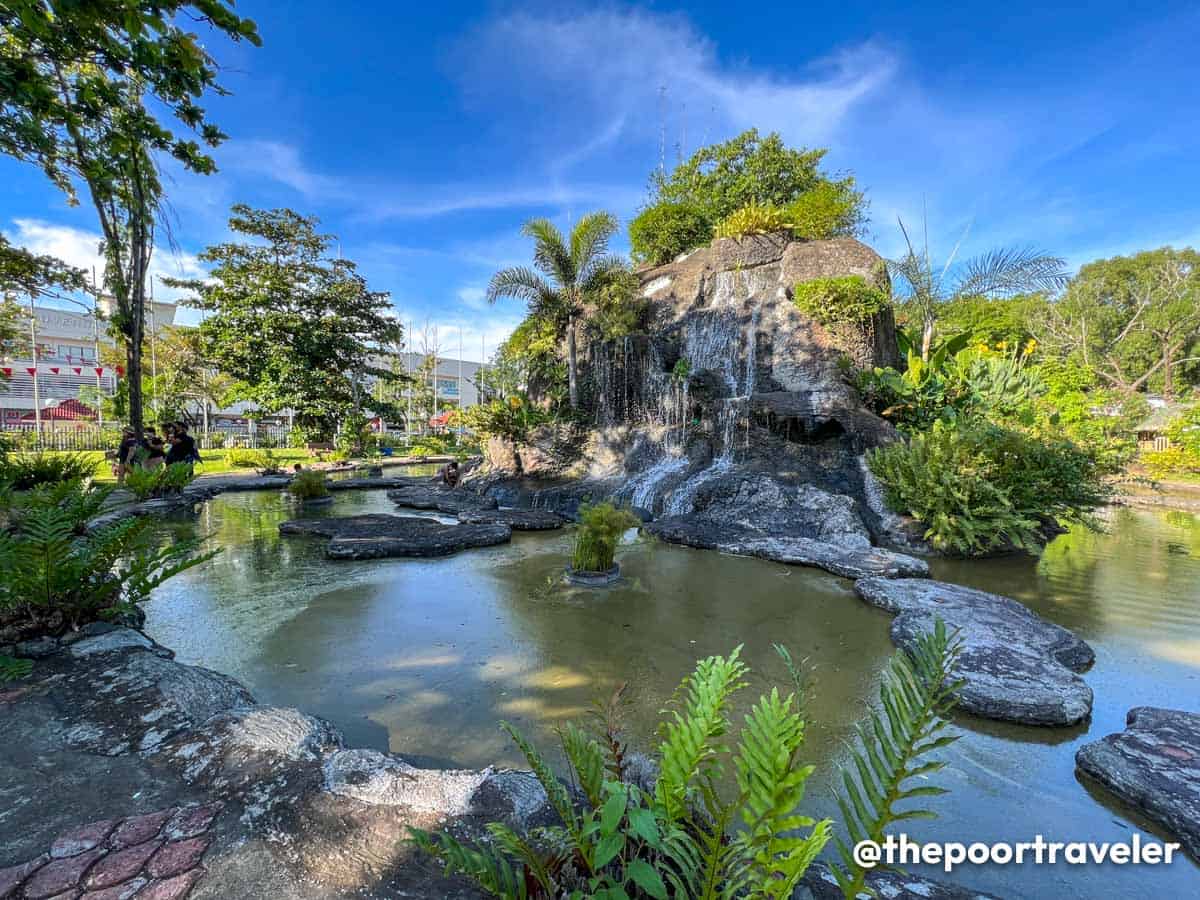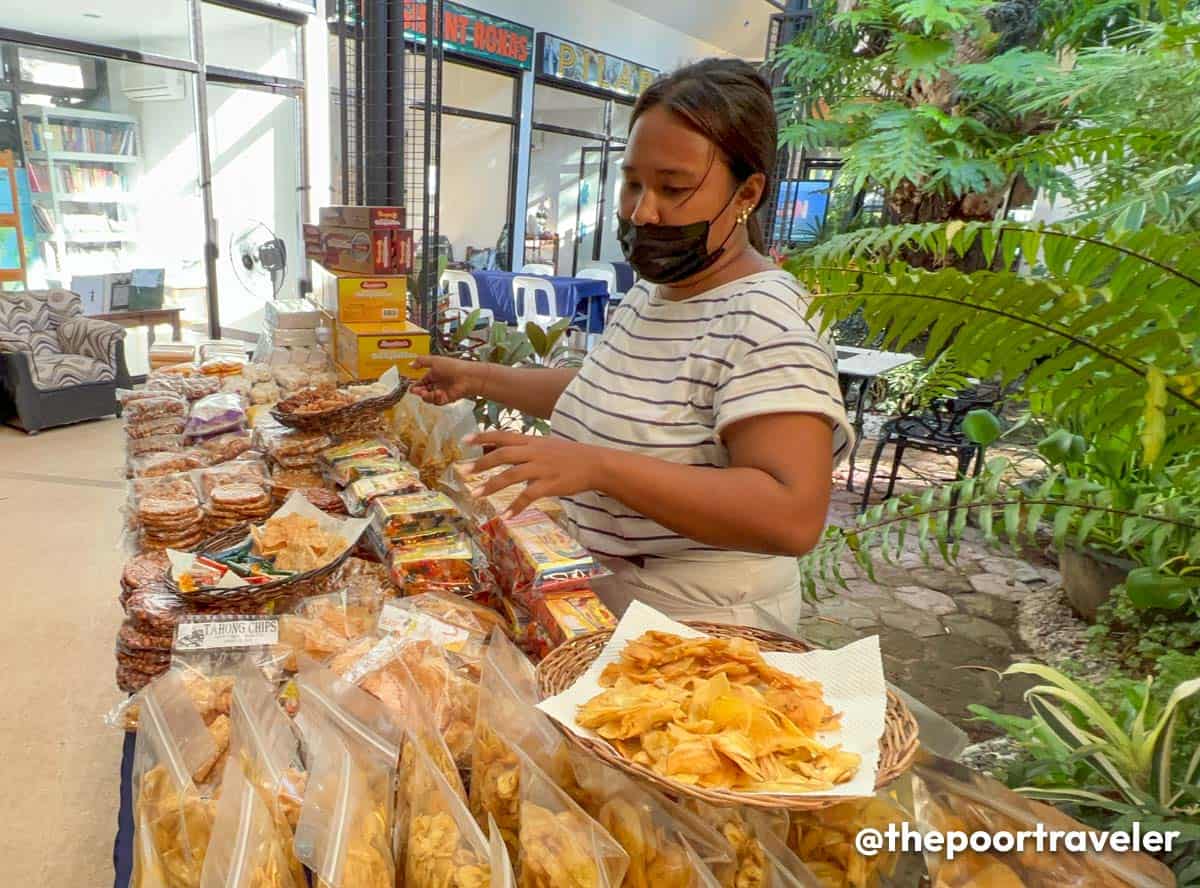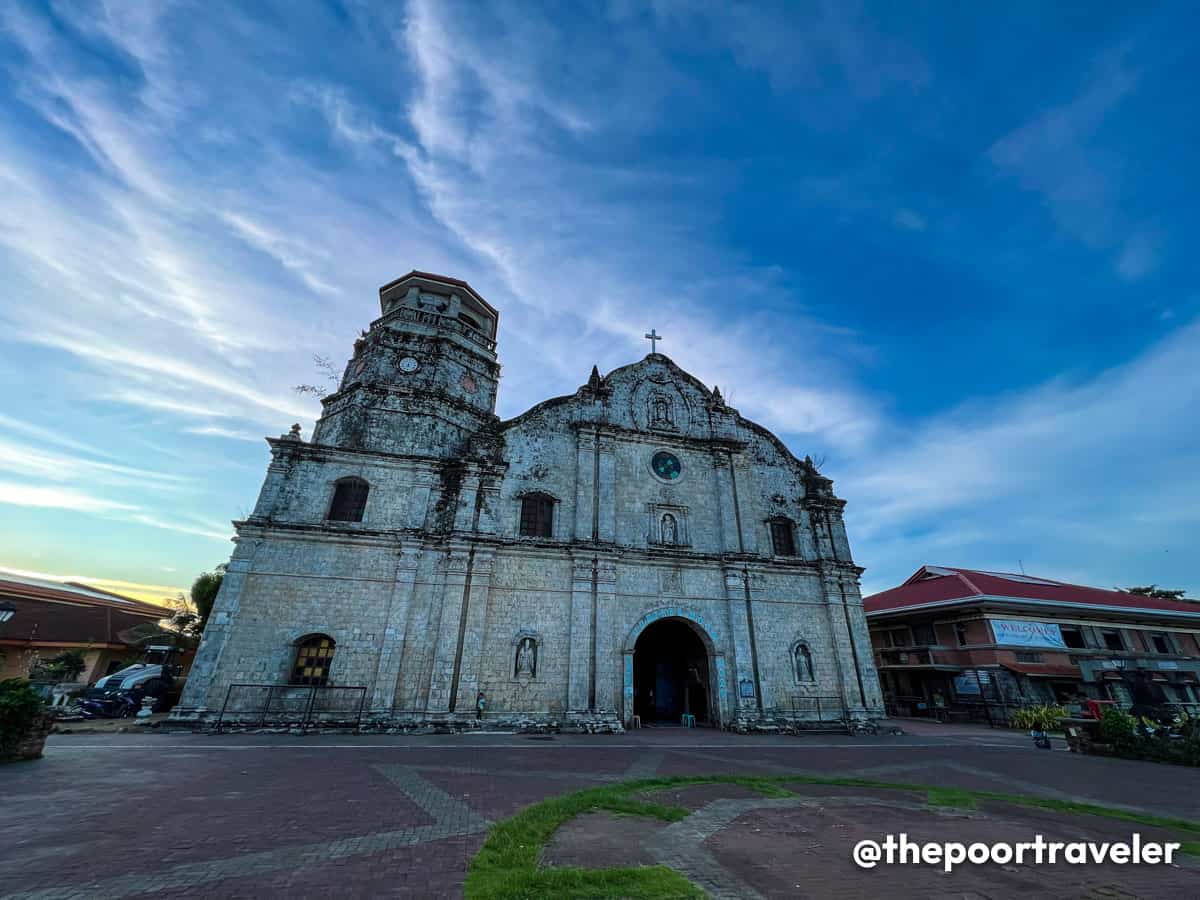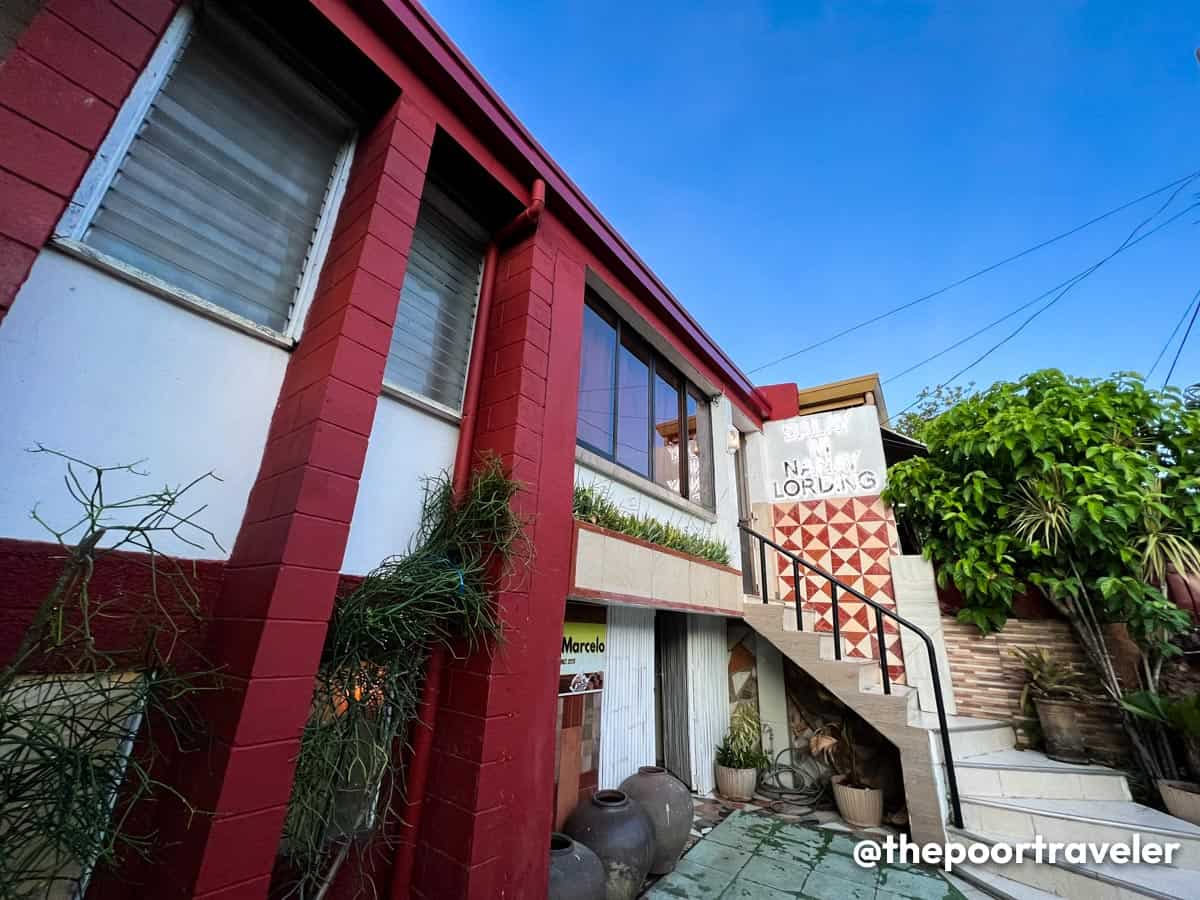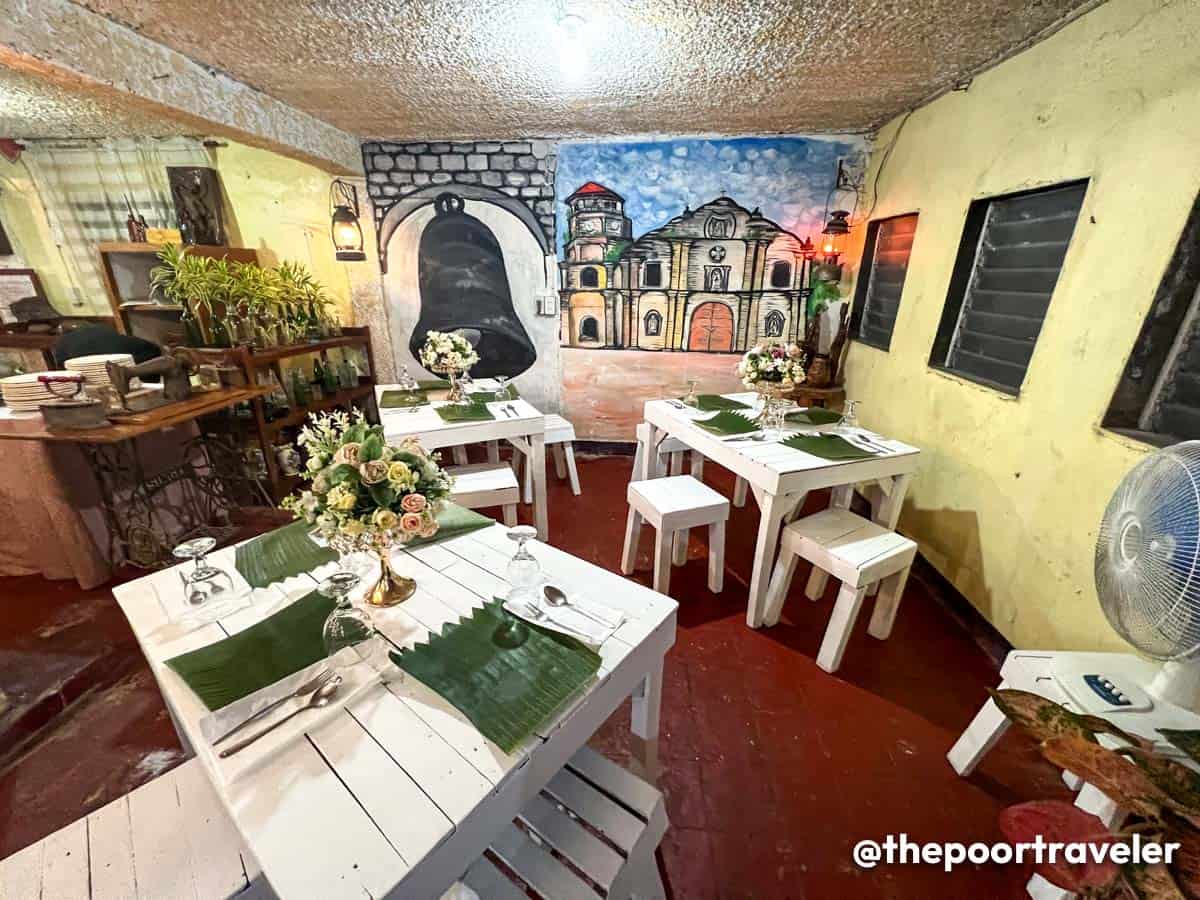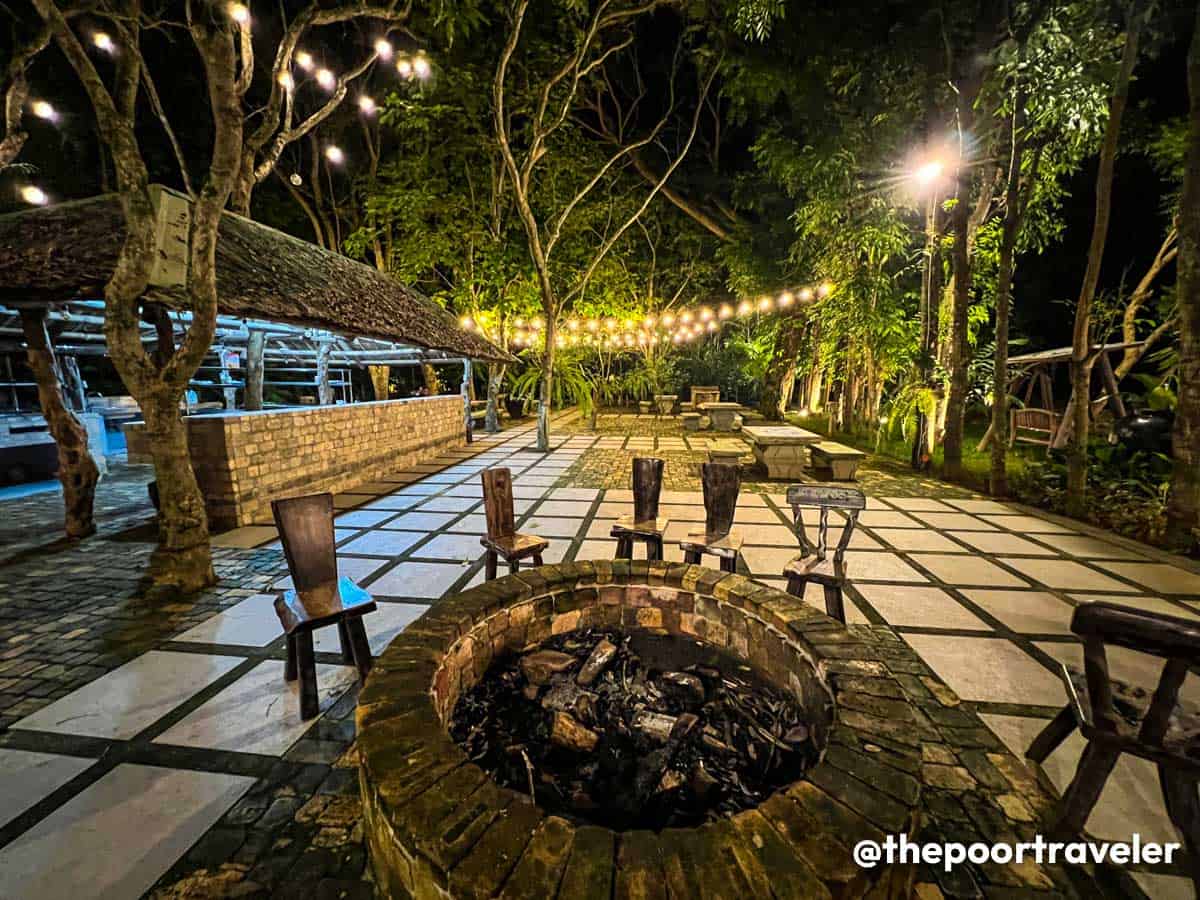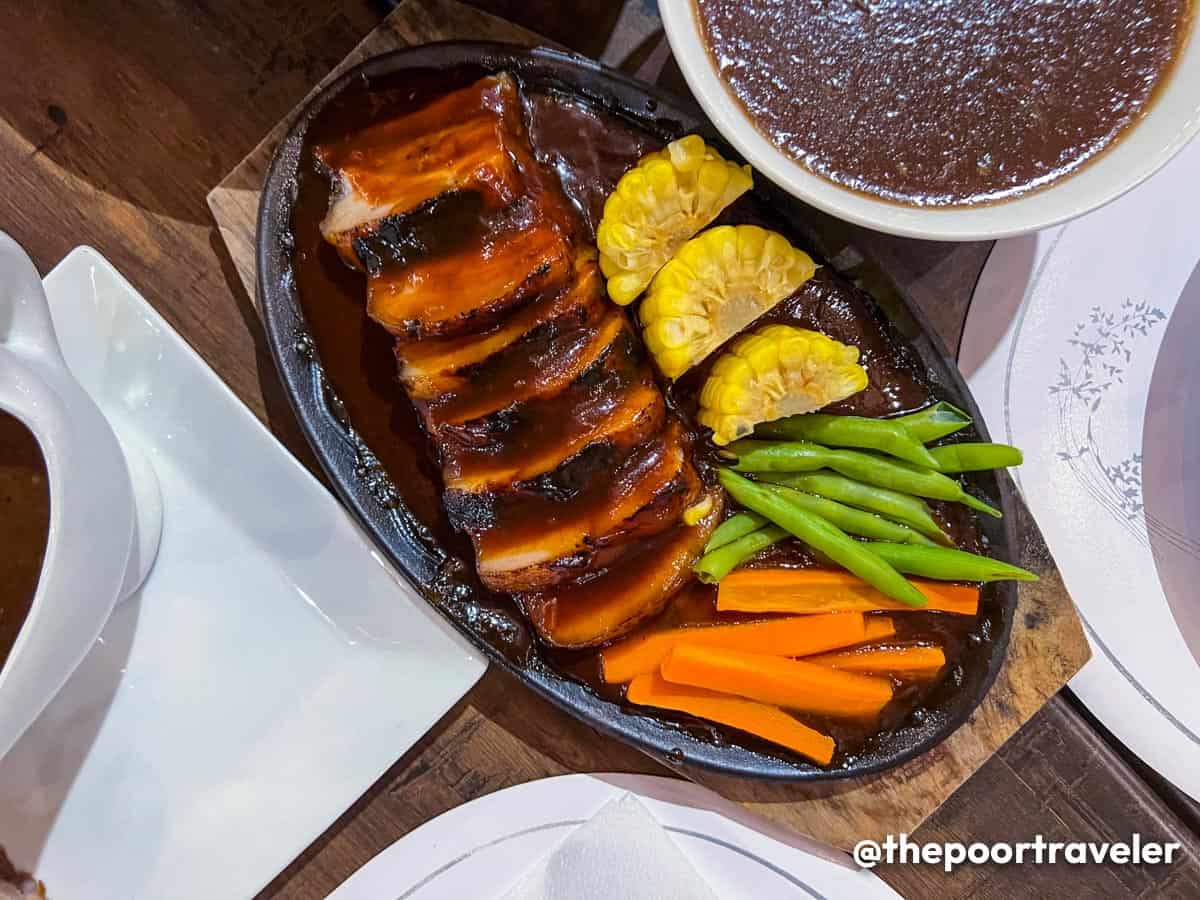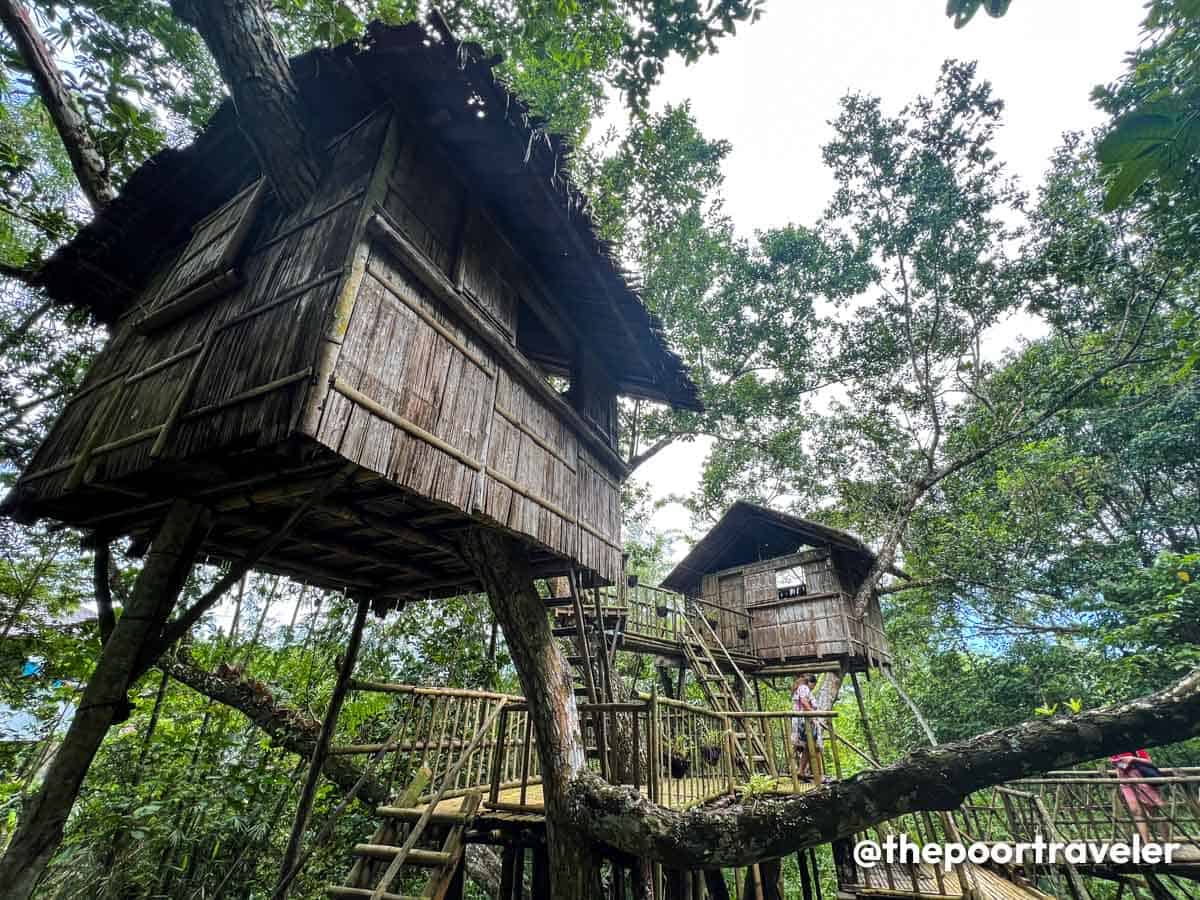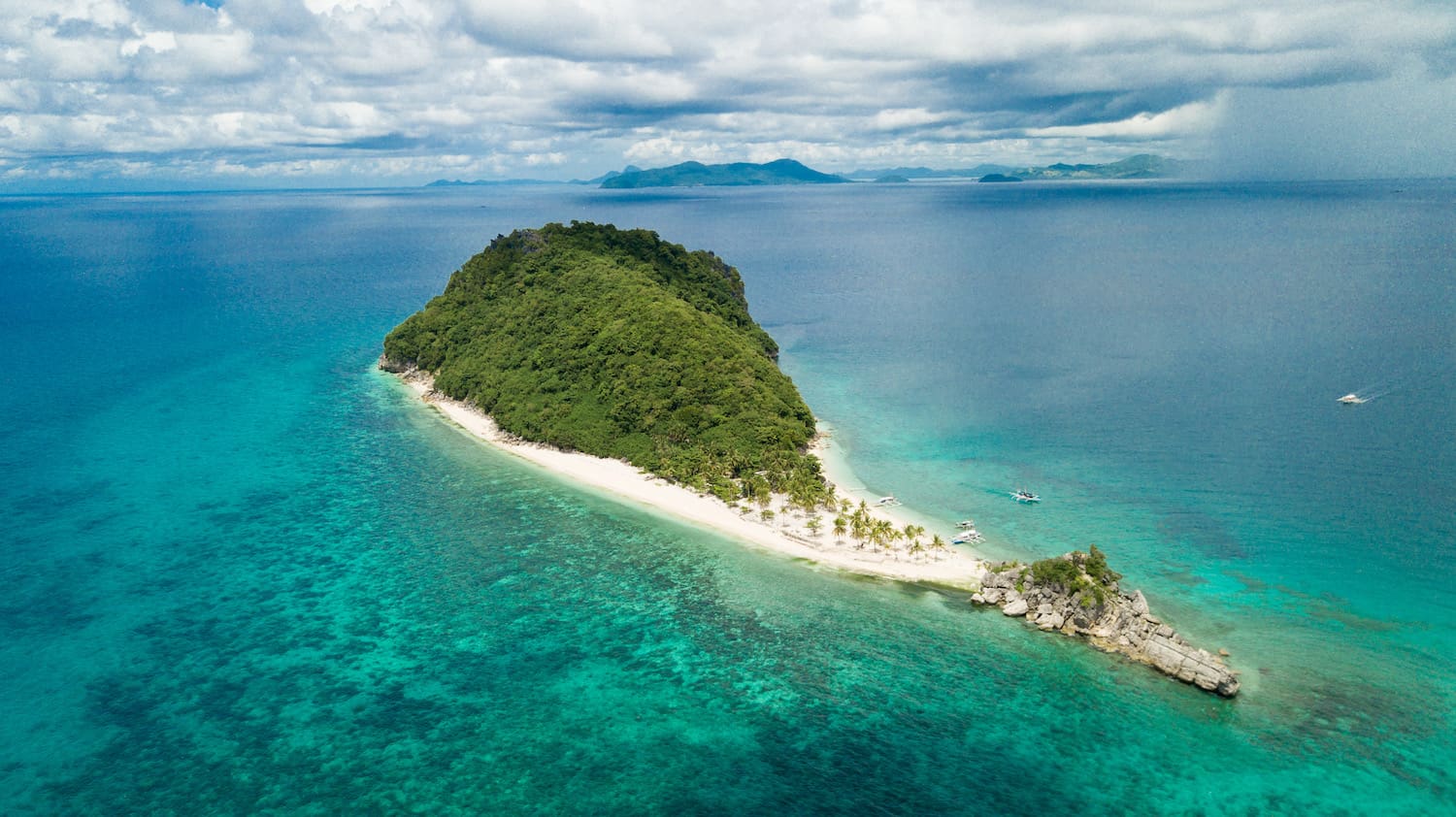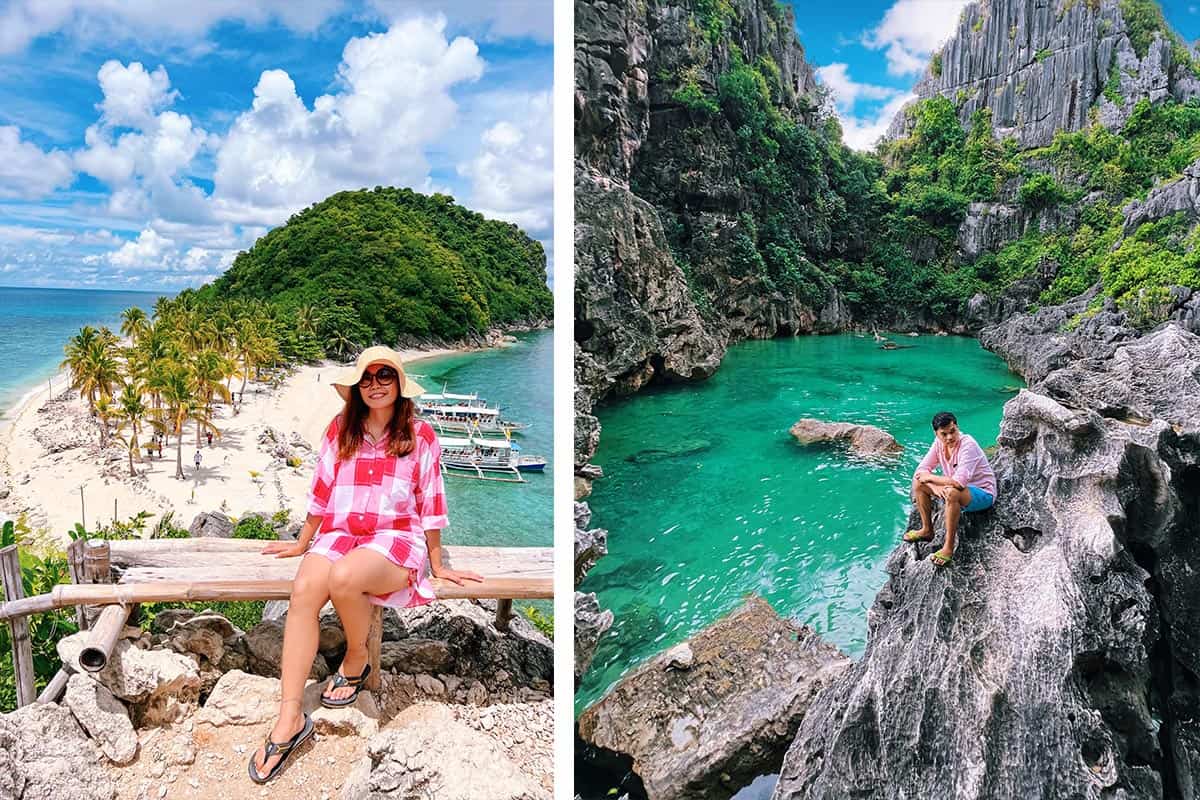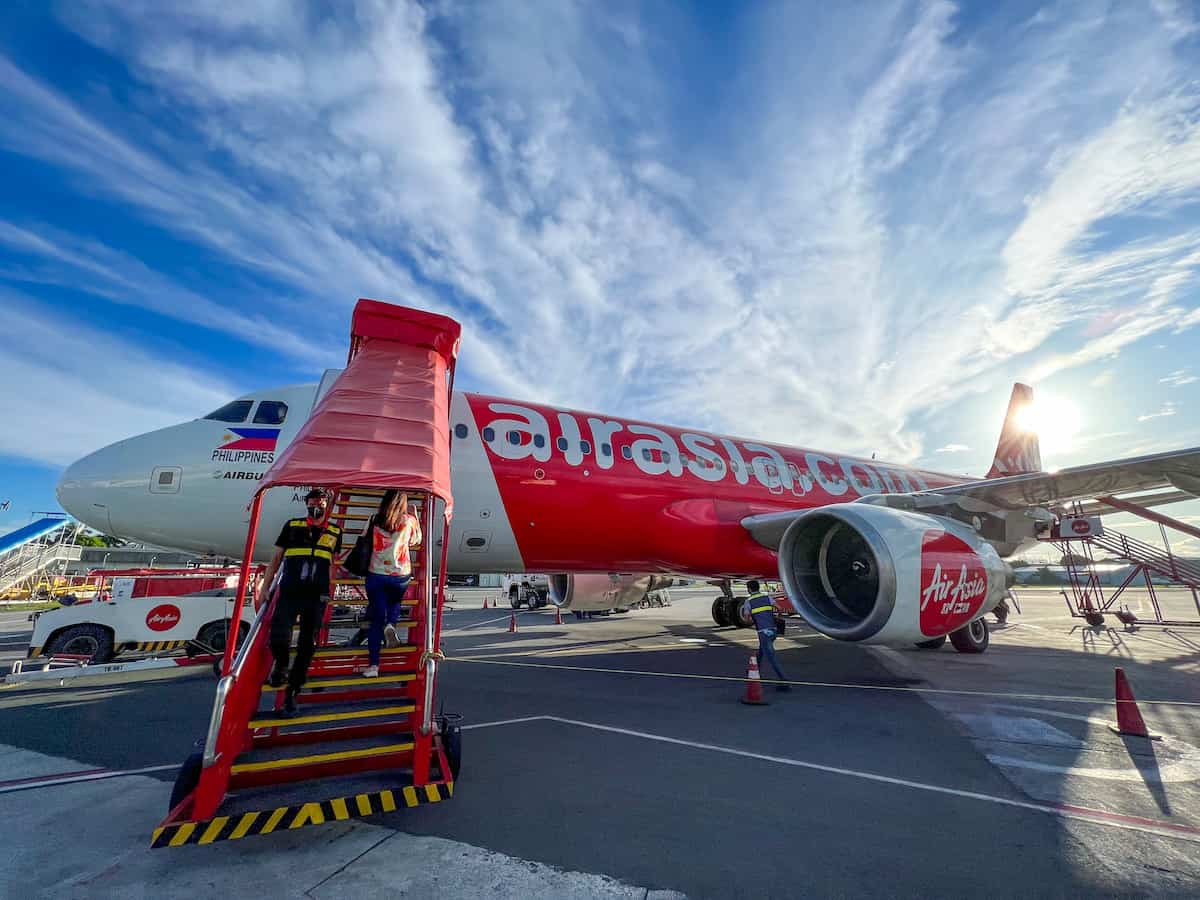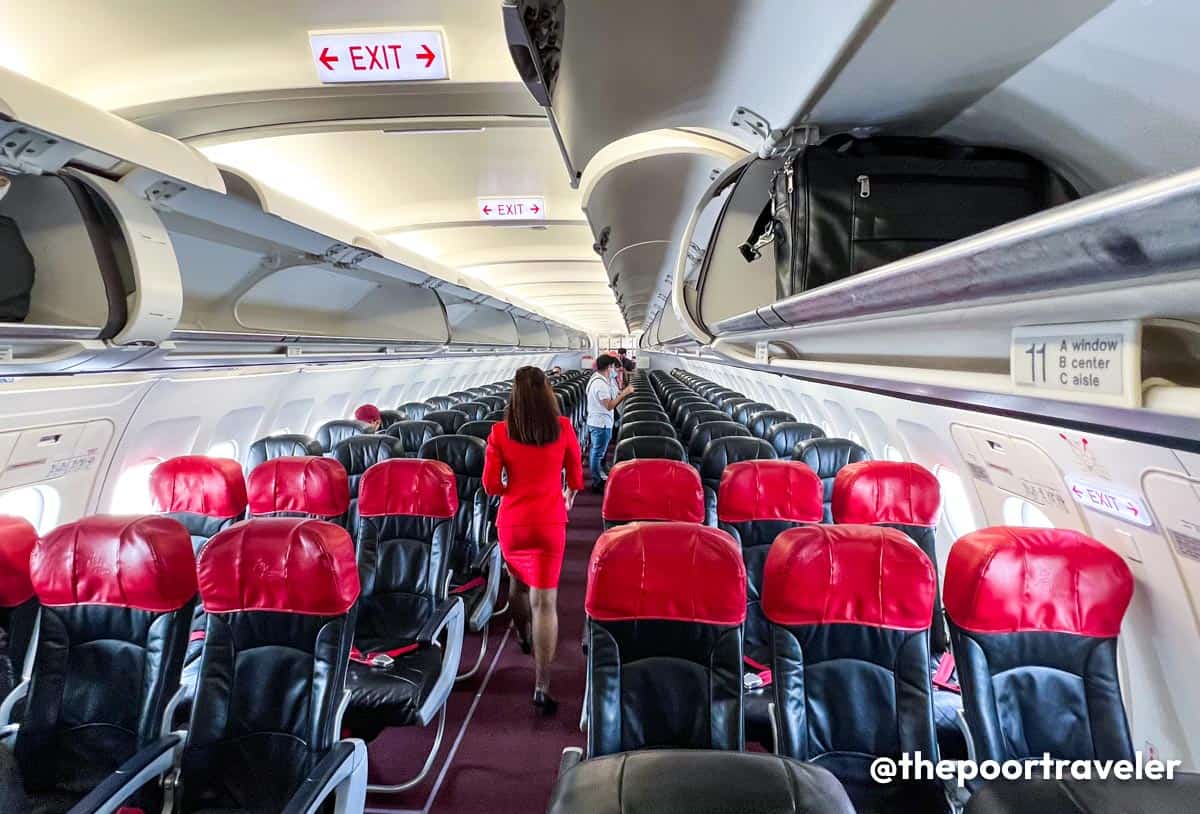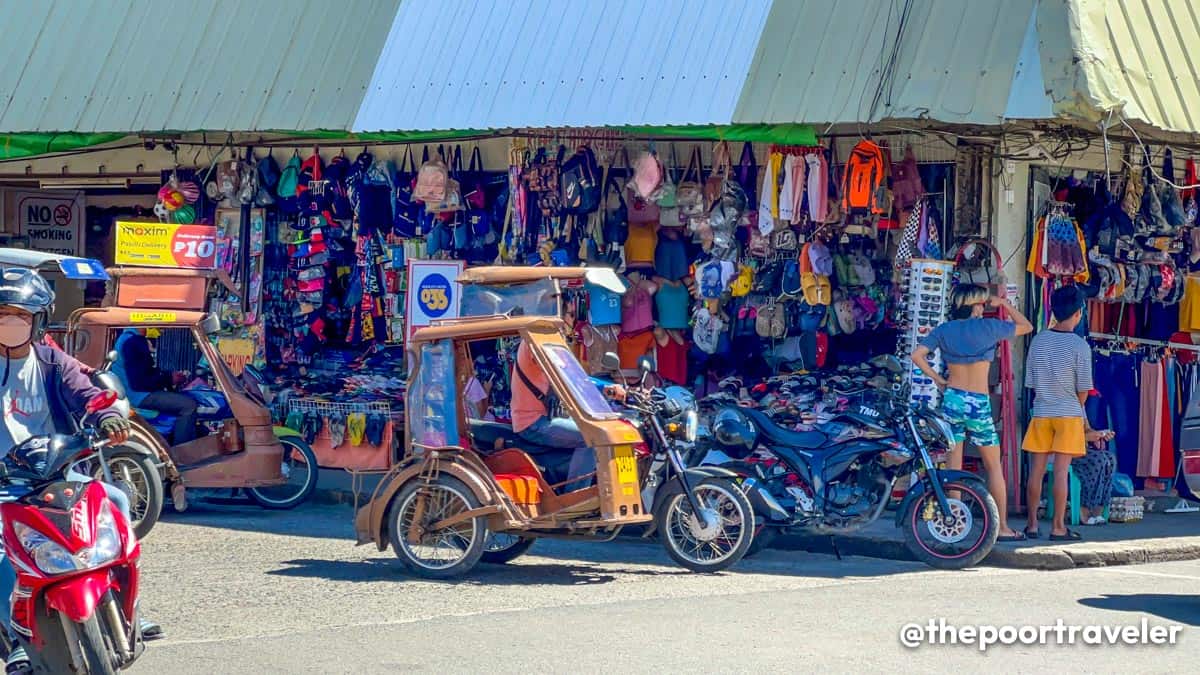
24 CAPIZ TOURIST SPOTS & THINGS TO DO for Your Roxas City Itinerary
[ad_1]

OK, let’s get something out of the way: No, we didn’t see any aswang. Not that we expected to.
Capiz’s close association with stories about the aswang — perhaps the country’s most well-known blood-sucking, fetus-munching, sometimes shape-shifting folk monster — has been so embedded in the Pinoy psyche that when we mentioned to anyone that we were Capiz-bound, it was the first thing to pop on their minds. It was also one of the first topics that our guide addressed, barely five minutes from the moment we emerged from the airport.
But as one great philosopher said, “C’mon guys, it’s 2022!” 😅
For the longest time, the aswang has overshadowed whatever else the province has to offer tourists. But Capiz is so much more than its folklore. Aside from its natural wonders, it also actively pushes sustainable attractions showcasing its culture, history, and cuisine, while helping promote the livelihood of the local community. If you’re into new and off-the-beaten path destinations, here’s a list of the things to do and places to visit in Capiz.
Note: This article is a work in progress. As of now, we have only explored Roxas City and neighboring Panay. We’ll update this as we travel and discover more of the province.
WHAT’S COVERED IN THIS GUIDE?
Roxas City is the capital of the province of Capiz. In fact, the province got its name from it, which was formerly called the Municipality of Capiz before it was renamed in honor of Manuel Roxas, the fourth president of the Republic of the Philippines. Today, it serves as the gateway to the province and nearby areas in Panay Island. Here are some of the key attractions in Roxas City.
Roxas City Museum (Ang Panublion)
Sitting at the heart of the city is the Roxas City Museum, officially named Ang Panublion Museum. The Hiligaynon term panublion means “heritage”, an apt description because it showcases cultural and historical artifacts including those of the province’s indigenous groups, the Ati and the Panay Bukidnon.
It is a great first stop of the tour because it can serve as a quick overview of what the city and province have to offer. This way, you’ll have more context when you visit another historic or cultural site, allowing you to appreciate them better.
Also on display are collections depicting the history of Capiz and of Panay Island as a whole. At the very center of the room stand blown-up photographs of various scenes in the province.
The museum structure itself is considered a historical landmark. Dating back to 1910, the circular water tank survived the claws of World War II and was eventually repurposed as a museum in 1993 by the city government.
Location: Legaspi Street corner Hughes Street, Roxas City, Capiz
Opening Hours: 9:00 AM – 6:00 PM (Tuesday – Friday); 9:00 AM – 5:00 PM (Saturday & Sunday); CLOSED (Monday)
Entrance Fee: FREE
Roxas City Plaza
Just one block away from the Panublion Museum lies the Roxas City Plaza, the city’s historic core. Surrounded by a number important structures, the square is a one-stop site to see some of the city’s key landmarks:
- a fountain at the center, which also serves as the Kilometer 0 mark
- the Rizal Monument and the Capiz Provincial Capitol on the eastern side
- a historic bridge on the southern side
- the Roxas City Hall on the northern side
- the Roxas Monument on the western side
- the City Bandstand
But perhaps the most dominant structure here is the Roxas Cathedral. More formally known as the Immaculate Conception Metropolitan Cathedral, it is the center of Catholic faith in Capiz and the seat of the Archdiocese of Capiz.
The church’s history can be traced back all the way to 1707, when it was established by Augustinian missionaries. But the building we see today was completed in 1827.
Palina Greenbelt Ecopark & River Cruise
Situated on the outskirts of the city, about five kilometers west of the urban center, the Palina Greenbelt Ecopark offers riverside agro-tourism, river tour, and fresh seafood treat on one of the many floating open-hut cottages.
Get a glimpse into the seafood farming industry. Remember, Roxas City is the country’s seafood capital! Here, fishermen grow their own oysters, mussels, shrimps, and other marine products, promoting sustainable tourism and the local community’s livelihood.
Managed by the community-based organization, Palina River Development Association, Inc., this multi-awarded undertaking has received recognitions including the ATOP-DOT Pearl Awards 2016 (Grand Winner for Community-based Responsible Tourism Enterprise), the ASEAN Sustainable Tourism Award 2018, and the Capiz Green Enterprise Award 2019 (Champion).
If you want to dig into the freshest catch, it is highly recommended to order a day or two before your scheduled visit. For reservation and pre-order (menu), you may reach the management via the contact details below. You may also bring your own food, but corkage fees apply.
Location: Sitio Cablatan, Barangay Cagay, Roxas City, Capiz
Opening Hours: 8:00 AM – 5:00 PM (Daily). Note that the schedule might change, so always check the official Facebook page before visiting.
Fees: P10/head (Entrance); P1,500 (Stationary Floating Cottage, 4 hours); P1,500 (River Tour, 1 hour, 15 pax); P2,000 (1-hour River Tour + 2-hour Stationary/Swimming)
Corkage Fees: P20/menu, P50/case, P100 (Lechon), P100 (Ice Cream)
Contact Details: 0910 609 7475 / 0946 319 5772
The Edge of Roxas City + Painted Anitos
Crowning a cliff along the northern, uhm, edge of the Culasi peninsula, The Edge is a relatively new hangout place where one can appreciate nature, food, and arts. The promontory faces the Sibuyan Sea, affording revelers picturesque views of the surrounding area.
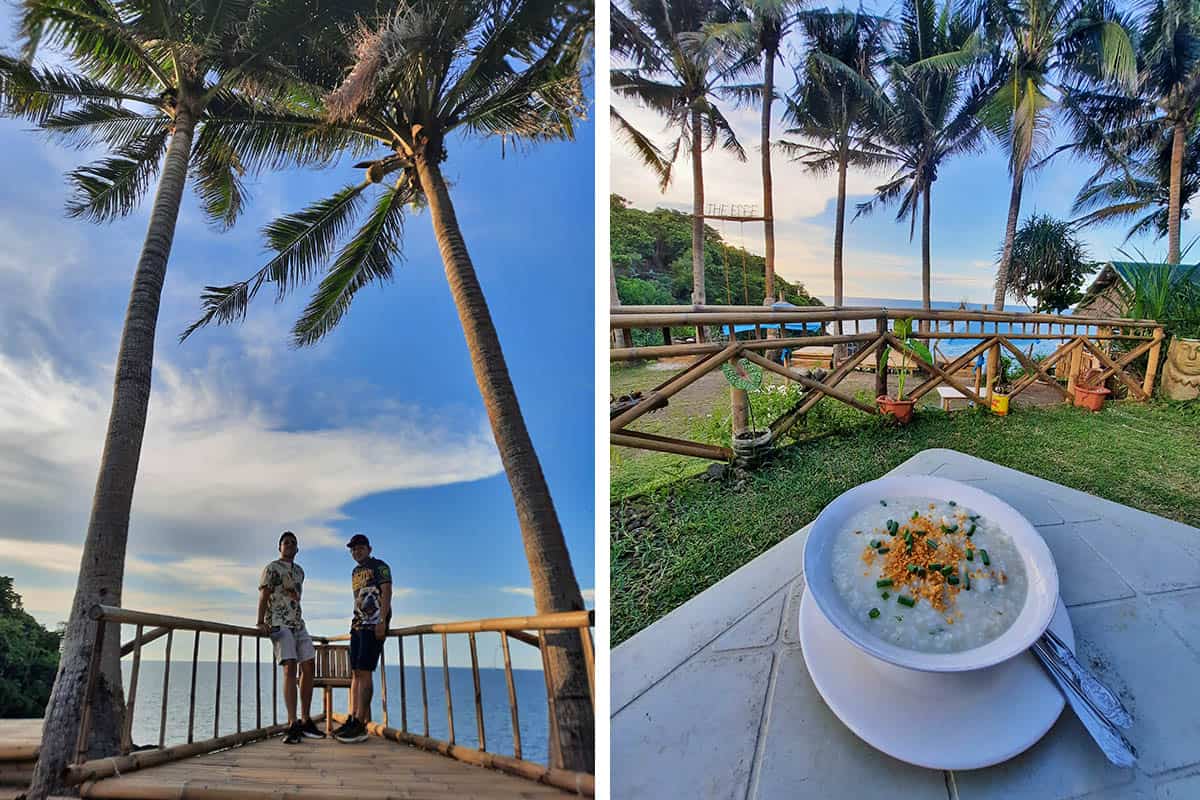
It was originally built as a private piece of paradise for family and friends of the owners but was eventually opened to the public. It has a snack bar serving refreshments, pica-pica (finger foods), and all-day breakfast for walk-ins. You can also ask for the special menu, but be sure to order a day before your planned visit.
From the Port of Culasi, guests need to trek about 300 meters to reach the place. The site also harbors the Barangay Culasi Lighthouse, just a short trek up from The Edge proper.
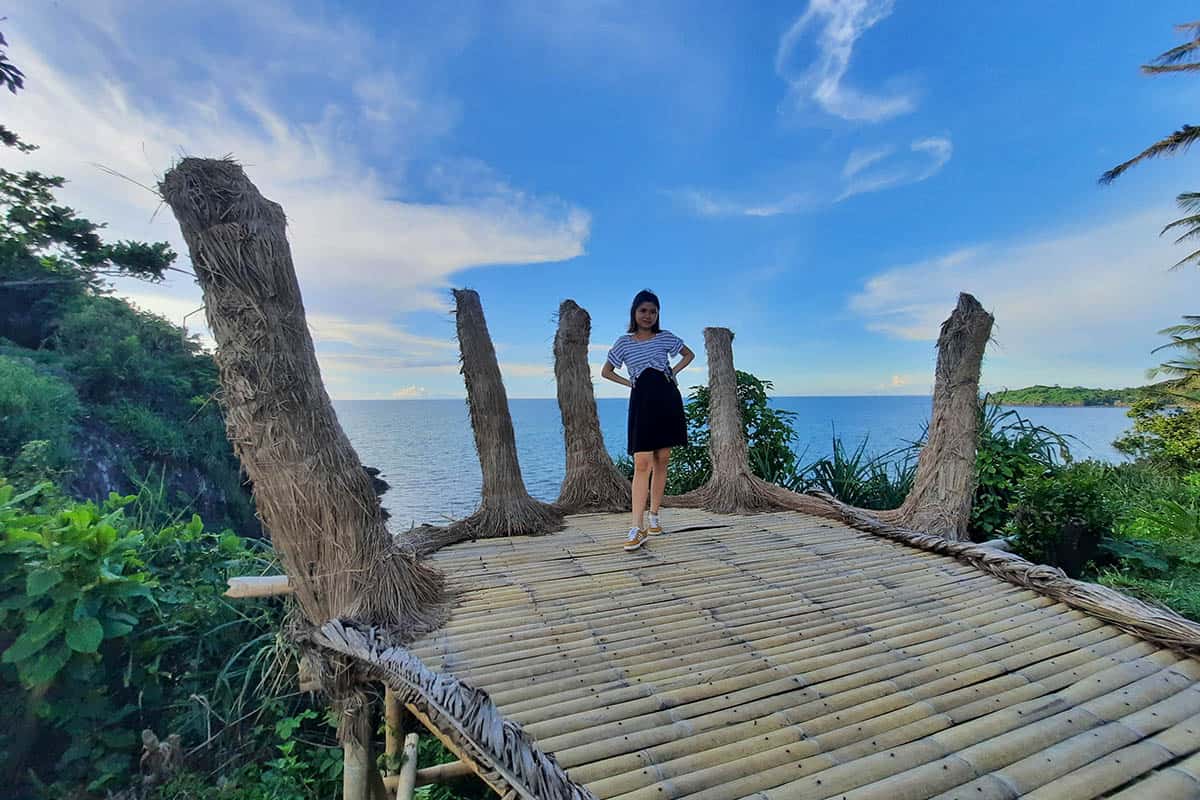
While its photo spots are evidently inspired by similar popular sites in Bali, its heart and soul are grounded in local heritage. On your way to the lighthouse, you’ll be greeted by colorful anitos. An anito can refer to ancestor spirit, which is revered in many folk religions. The idea of installing the painted statues came from Mr. Jose “Jong” Arcenas and his deep appreciation of our precolonial culture, especially that of the Hangaway Pintados, the tattooed warriors in Panay and nearby areas.
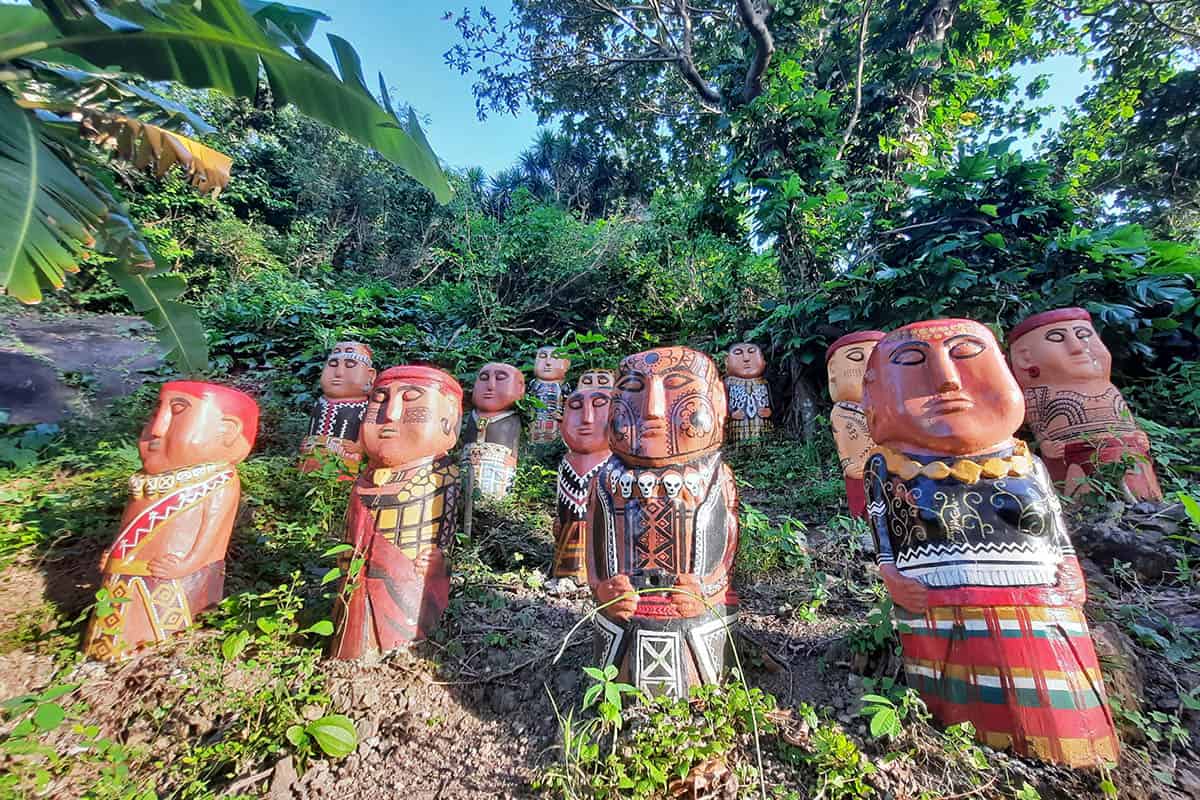
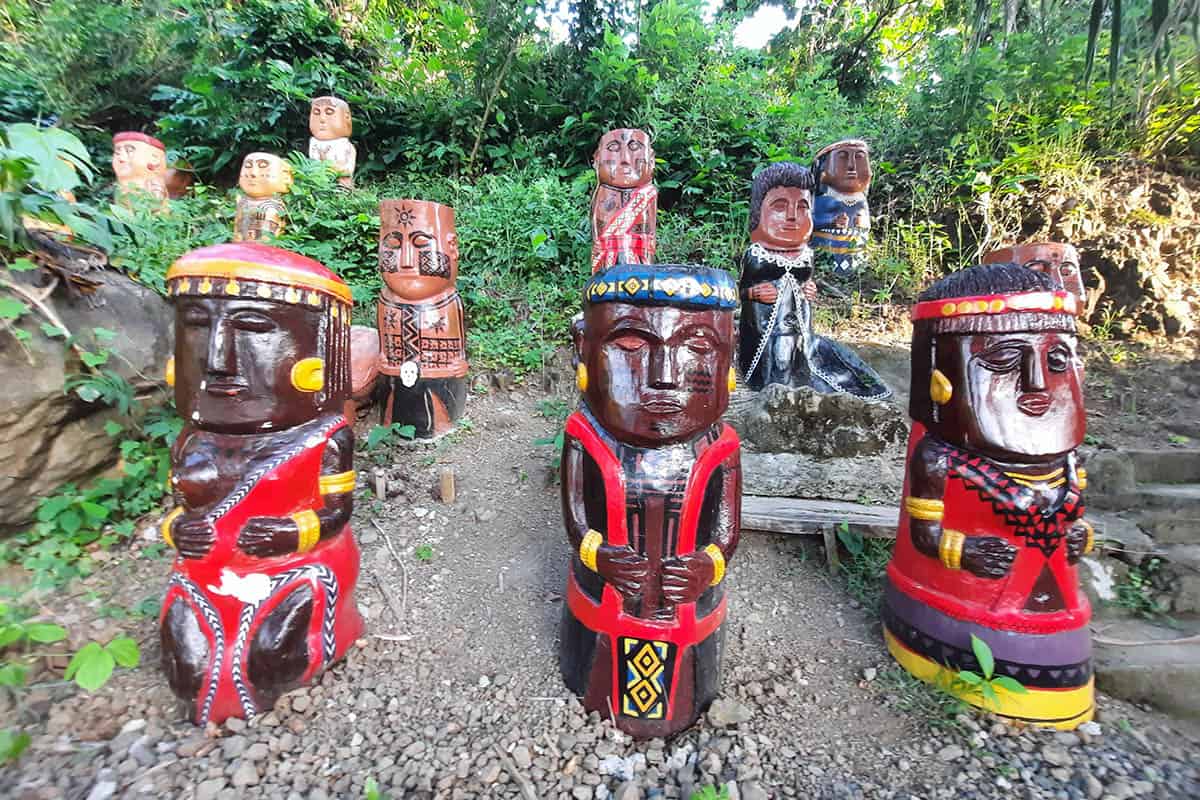
“(The anitos) are dressed up and painted with tattoo designs or traditional clothings,” Jong shares. “These tattoos have a lot of meanings and the definition of each pattern depends on the tribe it is representing.” Aside from local designs, the figures also highlight our Austronesian roots, showcasing Visayan styles alongside those of our seafaring cousins like the Maori; and illustrating how we are all related. In fact, each was created according to its artist’s interpretation of various traditional Austronesian designs including batik (textile) and batuk (tattoo).
Jong’s dream is to catapult this passion project of his into a major tourist attraction to bring this aspect of our heritage closer to more people. It’s also a great reminder of our rich culture and identity as a nation.
Location: Barangay Culasi, Roxas City, Cadiz
Opening Hours: 6:00 AM – 6:00 PM (Daily). Upon request, the closing hour can extend up to 10:00 PM. The schedule may change so check the official Facebook Page or contact the management for the updated schedule before going.
Entrance Fee: P20/head
Paseo del Rio & Casa de Mercado
Launched to the public in February 2022, Paseo del Rio (River Walk) used to be a dumping site but was later rehabilitated and transformed into a scenic promenade. Running between San Roque Bridge and Jumbo Bridge (Juliano Alba Bridge), it is a public leisure space, where people can have a relaxing walk along the Panay River.
The most prominent structure here is Casa de Mercado, fronted by the Paseo del Rio welcome sign. As of this writing, the casa is largely empty and only booked for private and public events. But it doesn’t take much imagination to see it and the whole stretch as a vibrant cultural hotspot — possibly a weekend market — that locals and tourists alike can enjoy on a more regular basis.
Roxas City Public Market
Just across Paseo del Rio stands the Teodoro Arcenas Trade Center, Roxas City’s public market and the largest in Capiz. More popularly known locally as Lipunan Market, it’s over 40 years old but was recently renovated after Typhoon Ursula damages some of its parts. It was named after former mayor Teodoro Roxas Arcenas, who had the marker built.
Like any other market, there are sections for fruits and vegetables, meat, dry goods, and other products. But it’s also a great place to find one of Roxas’s greatest assets — seafood — at friendly prices!
While Roxas City is a modern city, its more traditional roots can also be seen in and around the market, especially at shops selling various items that are claimed to have healing properties, commonly used by albolaryo. According to our guide Jong Arcenas (grandson of Teodoro Arcenas, after whom the place was named), these include staples like tawas, lana (coconut oil) and herbal medicine. You’ll also find kamangyan, a type of incense made from dried resin of select trees and then burnt to produce smoke, often used in treating certain diseases or at rituals; and sulfur powder, also used to heal some types of skin illnesses. But most curious of all are the anting-anting, amulets and talismans which are claimed to fight off or prevent aswang attacks, usog (afflictions brought about by the attention or greetings from strangers), or bad luck.
Jong also highly recommends Mang Inaso — nope, not Mang Inasal, but Mang Inaso. It’s a humble carinderia within the market premises that serves lutong-bahay-style Pinoy dishes but is best known for their barbecue or grilled meat like liempo. Its loyal patrons come from all walks of life, from drivers to executives.
Baybay Beach
Covering the northern border of Capiz, the seven-kilometer Baybay Beach is a popular leisure destination for locals because of its close proximity to the city center. Also called La Playa de Roxas, it overlooks the Sibuyan Sea, providing charming beachfront views, making it a favorite hangout spot, meeting place, and street food joint in Roxas.
The seemingly endless stretch of fine dark gray sand makes it a good venue for many activities including swimming, picnicking, playing beach sports, jogging, strolling, and watching the sunrise and sunset. From here, you’ll have a good look at some of the islands fronting the city including Mantalinga Island and Olotayan Island.
Visitors often have a full meal at one of the seafood restaurants lining the beach.
Location: People’s Park, Arnaldo Boulevard, Roxas City, Capiz
Opening Hours: 24/7
Entrance Fee: FREE
Tabai Coffee + Test Kitchen
But if you’re not up for a full meal but would love a drink while in Baybay, head over to Tabai Coffee + Test Kitchen. Tabai is more than just a cafe. Its biggest asset is its location, just right by Baybay, the city’s main beach. From its beachfront deck, you can watch the waves and enjoy a view of the islands.
During the day, it is a scenic cafe, perfect for meet-and-chill or work-and-chill types of situations. But at night, it turns into a cocktail lounge, where you can catch up with friends over a drink, preferably with alcohol. Baybay faces north so you won’t actually get to catch the sun set from the store, but you can still enjoy the glow as the day turns to night while taking a sip of its signature Tabai sunset drink. Tabai also hosts meetings, small gatherings, and events (arts and music) among others.
The menu also includes snacks, rice meals, chicken wings, and pizza. And true to its test kitchen tag, we were served a dish that wasn’t on the menu yet!
The Ruins of Alcatraz
The western end of Baybay Beach is dominated by the Ruins of Alcatraz, encroaching a promontory that overlooks the coast and the sea. The towering wall intimidates its onlookers, but it delights the fans of Attack on Titans as it is reminiscent of its three colossal walls (Sina, Rose, Maria).
It kind of reminds us of many other movies and series, too. Anything with a massive wall, really. From The Maze Runner to any medieval fantasy like Lord of the Rings or Game of Thrones. Let your imagination run wild!
The wall was supposed to be part of a resort, which the Bermejo family originally planned for that site but was later dropped. Today, the top portion mainly serves as a viewing spot, while the wall itself makes for a perfect background for photoshoots.
Location: Sitio Nipa, Barangay Culasi, Roxas City, Capiz
Opening Hours: 24/7
Entrance Fee: FREE
Mantalinga Island
There are different kinds of beauty. Mantalinga Island is a kind that one can only admire but not conquer. Separated from the mainland about one kilometer off the northern coast of Roxas City, the uninhabited island is visible from Baybay Beach, whether on the shore or in one of the restaurants lining the beach.
Crowned with greenery, the island sits on a rocky elevated throne, making it hard for people to dock and set foot on the island. It used to serve as a roundabout for kayaking and sailboat racing competition. The waters surrounding the island are adorned with colorful corals and are home to a diverse marine life, providing a perfect spot for scuba divers.
Nicknamed “Good Luck Island”, Mantalinga is believed to bring good luck to fishermen who will have the names of their boats written on the rocky foundation of the island before they go fishing during its maiden voyage. According to a legend, Mantalinga, along with Olotayan Island and Iloilo’s Gigantes Islands, is part of a giant’s body representing the eyes and the ears, hence the name.
Location: Roxas City, Capiz
Olotayan Island
According to folklore, the 53-hectare Olotayan Island is part of the legendary giant’s anatomy, particularly the head and the belly!
Situated a few kilometers off the coast of Baybay Beach, Olotayan is the sole island barangay of Roxas City. While the settlements are mostly niched on the eastern and the northern shores, much of the land is covered in vegetation.
An off-the-beaten beach destination, it isn’t usually frequented by tourists, making it a perfect spot for those who prefer quiet and less touristy beaches. The shore appears to be white, but it’s made up of coral rubbles, so it’s best to wear aqua shoes or footwear while strolling and exploring the beach. For those who love venturing further into the deep, the surrounding waters are home to various species of fish, corals, and even the fluted giant clams, according to our guide.
Some of the popular jump-off points are Baybay Beach and Punta Cogon. The travel time is around 30 minutes by boat. The strong waves make it challenging for smaller boats to cross the waters separating Olotayan from the mainland. It’s best to bring your own food and enough drinking water.
Espacio Verde Resort
As early as now, let me tell you that Espacio Verde isn’t cheap by any means. But if you’re in Roxas to celebrate an occasion and you don’t mind splurging a little, consider staying in one of their 23 suites, all spacious and well-appointed. These are housed in garden villas, which are surrounded by gardens and a man-made lagoon, which you can explore by kayak. Traveling with kids? They’ll have a splash zooming down the water slide into their swimming pool. It has something for everyone in the family.
Our favorite part is this picturesque walking path, flanked by date trees!
The resort also has three restaurants – Abuelo, Aquatico, and Veranda — but it is the first that serves as the main dining area, with a mostly Spanish-Filipino menu.
Sacred Heart of Jesus Christ Shrine
Crowning Tumandok Hill in Barangay Dinginan, the towering 132-foot Sacred Heart of Jesus Christ statue is considered one of the tallest and largest Jesus images in the Philippines. (The figure of Christ measures 102 ft, while the base 30 ft.)
The location affords pilgrims and visitors a 360-degree view of Roxas City and a panoramic view of Sibuyan Sea. You can also spot the statue from afar, at least from some parts of the main road (highway).
The shrine is a project of the Ong family, who owns and runs the Sacred Heart of Jesus Development Corporation (SHJDC) and Pueblo de Panay, two of the biggest employers in the province. But the site is more like a personal tribute. We had the pleasure of chatting with SHJDC VP for Corporate Affairs Hariette Ong-Banzon, one of the Ong siblings. She shared with us the heartwarming story of how her sister, Hyacinth, was diagnosed with a rare disease in 1990 and how faith pulled their family together and surrendered everything to the Lord. Her miraculous recovery led them to building the statue, inspired by a vision she had while still battling the affliction.
The construction of the church at the base is still ongoing, so donations, big or small, are greatly appreciated. You can also buy snacks, drinks, and souvenir items beside the parking lot and the temporary chapel.
Location: St.Peter’s Road, Tumandok Hill, Pueblo de Panay Township, Barangay Dinginan, Roxas City, Capiz
Opening Hours: 7:00 AM – 6:00 PM (Daily). Note that the schedule might change, so always check the official Facebook page (Holy Trinity Drive Healing Ministry, Inc.) or contact the management before visiting.
Entrance Fee: FREE
Homegrown Cafés
The laidback vibe of Roxas City is a perfect setting for coffee breaks and meetups. Charming homegrown cafés are steadily becoming popular. Each has its own specialty and offering both local and international flavors and concoctions.
One of the rising spots for a caffeine fix is Luna Coffee, located right at the heart of Roxas, just a couple of hundred meters west of the City Plaza’s Kilometer 0 Fountain. At first glance, it’s quite difficult to pin down the theme it’s going for. Aesthetically, it has the trendy industrial look, but ledges are adorned by items from the Marvel Cinematic Universe and walls are neon-lit with Korean and Filipino phrases. But this hodgepodge of decors is probably what makes it interesting. Every corner here is stylishly Instagrammable, that is if you can catch it unoccupied.
The cafe takes the most pride in its freshly made hand-crafted espresso and iced Spanish latte. But alas, we weren’t in the mood for coffee at the time, so we ended up having a cup of their “pink drink”, made with strawberries and condensed milk.
Café Terraza
Perched on a hill in the sloping complex of Circulo Convention Center, Cafe Terraza proudly claims to be the only scenic hilltop dining destination in Roxas City. The cafe is set on a spacious terrace, enabling local patrons and visitors to soak in gorgeous countryside views and laid-back vibe. It also has 15 native cabanas and a pavilion, and serves Filipino and international dishes.
Roughly three kilometers south of the urban center, its accessibility is also a contributing factor to its popularity.
Location: El Circulo Convention, Sacred Heart of Jesus Avenue, Barangay Dinginan, Roxas City, Capiz
Opening Hours: 10:00 AM – 10:00 PM (Daily). Note that the schedule might change, so always check the official Facebook page before visiting.
Banica Dried Fish Center
Banica Dried Fish Center is located over two kilometers east of the city center, in Barangay Banica. It is a popular wholesale dried fish market and pasalubong center. The whole stretch of street, from the main road to the Banica Wharf, is lined with vendors selling different kinds of dried fish — tabagak, barol, balingon, and dilis, just to name a few. If you are planning to buy pasalubong here, your landmark is the Banica Bridge and the Shell Gasoline Station.
We had a nice chat with one of the vendors, Ate Mylene, who explained to us many of the products on display. If you’re planning on buying dried seafood, visit her at Andre and Janna Store, but there seemed to be no signage so just choose the third stall from the main road. Or look for her.
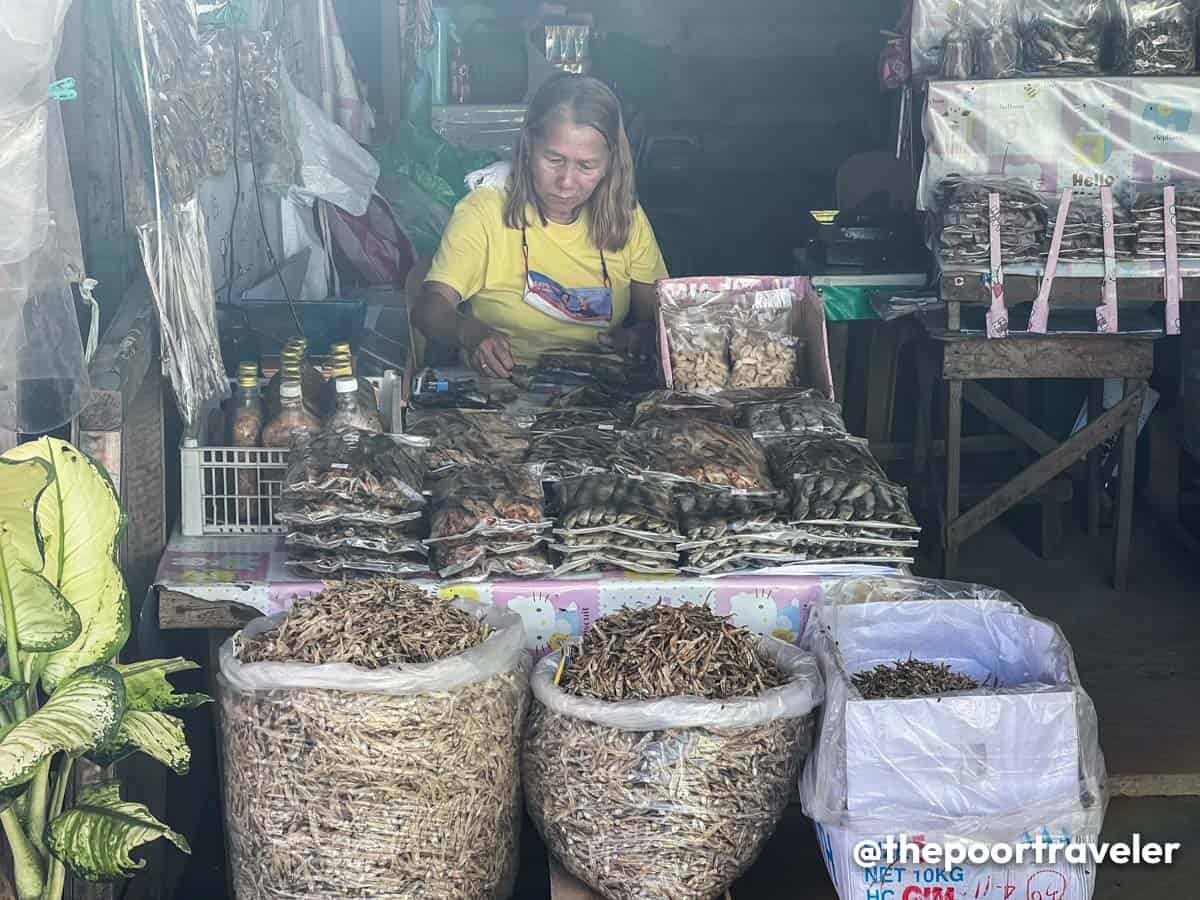
Location: Iloilo East Coast – Capiz Road, Barangay Banica, Roxas City, Capiz
Capiz Provincial Park
A green haven, the Capiz Provincial Park grants a quick breather from the hustle and bustle of the city. Its centerpiece is a small manmade rocky fountain surrounded by a small lagoon. The park also serves as an arboretum of some native trees in the Philippines.
It’s also here that you’ll find the Capiz Tourist Information Center and Specialty Shops, a one-stop shop for local handmade products, delicacies, and souvenirs from not just Roxas City but also other municipalities in Capiz. Some snack shops offer free samples for tasting so you know which items to purchase without regrets!
Location: Fuentes Drive, Roxas City, Capiz
Opening Hours: 24/7 (Park)
Entrance Fee: FREE
Culajao Mangrove Eco Park
You’ll know Roxas City places great importance on environment and sustainable tourism by the number of eco-friendly attractions dotting the city’s map. Another green destination is the Culajao Mangrove Eco Park, a nearly five-hectare mangrove reservation area in Barangay Culajao, about four kilometers northeast of the city center.
Opened in June 2008, this mangrove reforestation project is spearheaded by the Roxas City Government in partnership with Katunggan Sa Culajao Salbaron Association (KACUSA), Inc. and PEW Fellows Program in Marine Conservation, aiming to educate both locals and tourists on the benefits of mangroves in the community, the ecosystem, and the environment as a whole.
The Culajao Mangrove Forest is home to several mangrove species and diverse wildlife — birds, fishes, insects, mollusks, and more. Cottages are available for visitors who like to spend more time here.
Location: Barangay Culajao, Roxas City, Capiz
Opening Hours: 8:00 AM – 5:00 PM (Daily). Note that the schedule might change, so always check the official Facebook page before visiting.
Entrance Fee: P20 (Adult), P15 (Student), P10 (Child)
Other Fees: P100-250 (Cottage, depending on the size); P100/5 pax (Paddle Boat, P30/head if less than 5 pax, P20/head if more than 5 pax); P300/trip (Floating Bamboo Raft, 15-30 pax, available only during high tide)
While Roxas City is the official capital of Capiz, the municipality of Panay (pronounced Pan-ay) was declared the heritage capital of the province. In fact, it is the second oldest Spanish settlement in the Philippines, next only to Cebu. It is often included in and often becomes the highlight of most Capiz tour itineraries. Below are some of the must-see attractions in Panay.
Panay Church
Officially named Santa Monica Parish Church, the historic Panay Church traces its roots back to the late 17th century, but the current structure was built in the late 19th century. It was designated a National Historical Landmark by the National Historical Commission of the Philippines in 1997 and a National Cultural Treasure by the National Museum in 2001.
The Neo-Classical Baroque structure was made of coral stones featuring three-meter-thick walls. Other features are the old wooden roof truss, the artifacts, the museum, the Our Lady of Lourdes Grotto, the old Spanish well at the back of the church, and of course, its famous bells!
History buffs will have a grand time admiring the church’s most remarkable treasure — the humongous 19th-century bell fondly called Dakong Linganay. It is currently the largest Catholic bell recorded in the Philippines and in Asia.
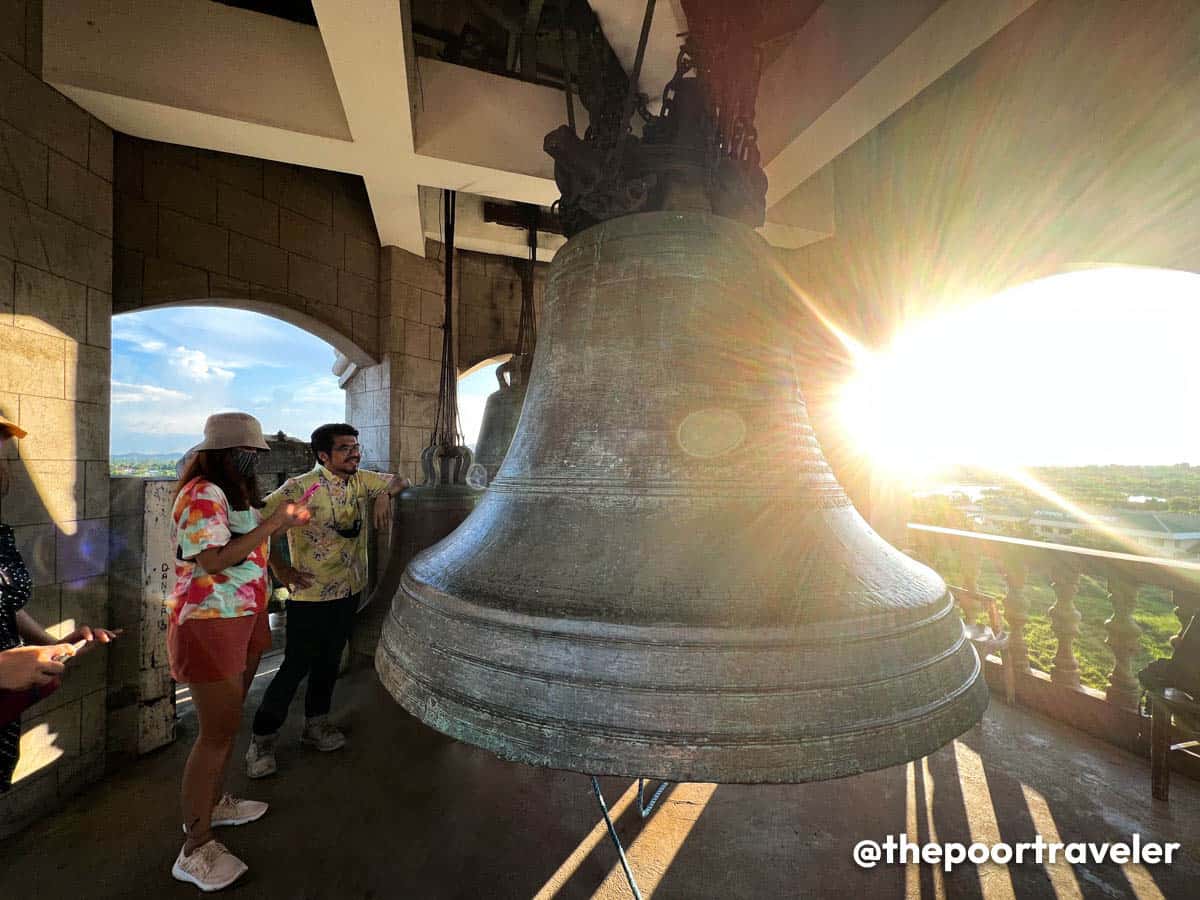
Commissioned by Father Jose Beloso and completed in 1884, the famed bell was created by Don Juan Reina out of coins donated by the townspeople. It measures five feet tall with a diameter of seven feet and weighs over 10,000 kilograms. If you want to climb up the five-story bell tower to see the original centuries-old bell (and the other eight), you can ask one of the staff (usually, it’s Kuya Joseph) to accompany you.
If you can’t or don’t want to climb the belfry, you can find the replica of the bell, placed in front of the Museo de Santa Monica next to the church.
Location: Iloilo East Coast – Capiz Road, Panay, Capiz
Opening Hours: 9:00 AM – 5:00 PM (Monday, Wednesday – Saturday); 9:00 AM – 11:30 AM (Sunday); CLOSED (Tuesday). Note that the schedule might change, so always check the official Facebook page before visiting.
Entrance Fee: FREE, but you are welcome to donate any amount. And you may also give tip to the staff member accompanying you to show your appreciation.
Balay ni Nanay Lording
Located along Calle Revolucion, said to be the second-oldest street in the country, in Barangay Poblacion Ilawod, Balay ni Nanay Lording is one of the heritage houses in Capiz. From the outside, the house might not look too old because of the modern accents added through the years, but when you step inside, you’ll see that it has preserved many parts of the old interior.
This is the family home of Ms. Vicky Baes, President of Capiz-Roxas Travel Agencies and Tour Operators Association (CARTATOA). She herself showed us around the house, which also serves as a museum, safeguarding a number of antique tableware and age-old clothing, nostalgic furniture, and other collections. You’ll see some of the family’s heirloom and treasured possessions.
The space downstairs was transformed into a specialty restaurant, Cafe Marcelo, offering meal packages, including all-out seafood-all-you-can (P378 per head), good for big groups, including crabs, scallops, oysters (served raw), squid, and fish, all served fresh!
Chocolate lover? Coffee addict? The garden cafe also has a local tablea and coffee showroom. You can take home some of their very own tablea chocolate (P200-300 per pack) and native Capiz coffee in pasalubong-ready packs. Salud salud!
Location: Calle Revolucion, Poblacion Ilawod, Panay, Capiz
Istorya Forest Garden
It was hard to find one label that fits Istorya Forest Garden. It is an outdoor bar, offering a whole range of alcoholic drinks from cocktails to sangria to wine to whiskey. It is a restaurant, serving what was undoubtedly the best meal we had in Capiz. It is a romantic sanctuary, set under the canopy of towering trees, surrounded by nature, illuminated by lines of lanterns at night.
But it is first and foremost a resort. It was originally a private family resort, but in 2019 it finally started accepting guests, seeking refuge from the busy work week. This eight-hectare lush property houses four villas and 23 rooms. For overnight stay, reserve and book by contacting them through email, mobile numbers, or Facebook messenger (details below).
You may also visit on a day tour, but it’s best to contact them before you go. While the resto-bar is also open to non-staying visitors, they may only drop by on specified days (see details below) before 5pm. Beyond these hours, the property is exclusive to resort guests who are checked in. The resort also hosts events, private dinners, and Sunday Brunch Buffet.
Location: Barangay Poblacion Ilaya, Panay, Capiz
Opening Hours: Oculars 9:00 AM – 5:00 PM (Thursday – Sunday); Bar Botanico 3:00 PM – 9:00 PM (Friday – Sunday). Note that the schedule might change, so always check the official Facebook page or contact the management before visiting.
Contact Details: contact@istoryaforestgarden.com / 0933 855 1705 / 0917 855 9307
Capiz Ecology Park and Cultural Village
Encompassing 16 hectares, the Capiz Ecology and Cultural Village is a vast green space established to promote sustainable community-based livelihood and agro-tourism. Home to various endemic trees and plants, the park also serves as an educational site for organic farming and forestry.
Managed by the provincial government, it also functions as an open-air museum showcasing some of the traditional houses in the Philippines including the Ati’s sapew ke meme, the Hiligaynon/Akeanon/Kinaray-a’s payag, the Igorot’s Bontoc house or fayu, the Panay Bukidnon’s house, and Jama Mapun’s luma. We were told there also used to be a lepa, the Badjao’s traditional boathouse, but was destroyed by a recent typhoon.
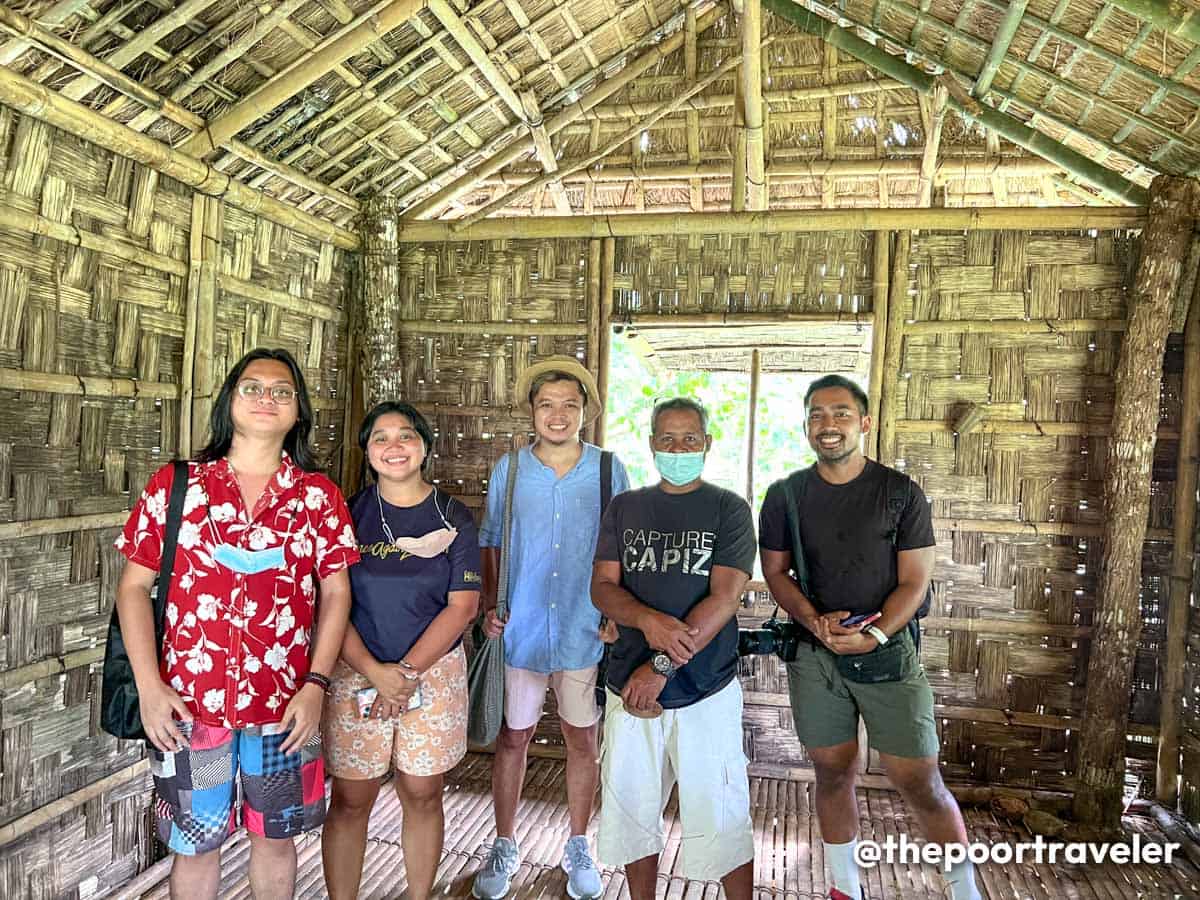
Our guide from the Tourism and Cultural Affairs Office, Sir Ahdiemar Baylon, toured us and patiently explained each stop. He also allowed us to witness how native delicacies are made (including my favorite nilupak, which is made with plantains in this part of the country) and learn more about the province’s cultural heritage through weaving and other local crafts.
The park also hosts corporate team buildings, seminars, retreats, campings, and just a quick getaway from the usual daily grind. Other facilities are spa house, wall climbing, treehouse, souvenir shop, and a café (Kapehan sa Ecopark).
The park is located in Brgy. Nagba in the municipality of Cuartero, a bit detached from the usual tourist attractions. But if you wish to come visit, you may get in touch with Park Manager Rolly Miguel at 09194720875.
Location: Barangay Nagba, Cuartero, Capiz
Opening Hours: 8:00 AM – 5:00 PM (Daily). Note that the schedule might change, so always check the official Facebook page before visiting.
How to get there: From Roxas City, board a bus to Cuartero town center (P60-80). From there, the park is just a 10-minute tricycle ride away.
Entrance Fee: FREE
Diwal and Other Seafood
In Capiz, you’ll find the freshest and most delicious seafood the country has to offer. Hello?! You are in the Seafood Capital of the Philippines, so go on and stuff your face with the relatively affordable local and classic seafood dishes.
From the Baybay Beach seafood grills and eateries to the Palina Greenbelt floating restaurants to the unlimited seafood buffets, the options are seemingly endless — crabs, prawns, mussels, scallops, catfish, marlins, shrimps, and oysters! But our favorite is definitely the diwal, also known as Oriental angel wing clam (Pholas orientalis). Oriental, perhaps to differentiate it from another similar looking clam in the west (Cyrtopleura costata). Angel wing, because look at it! They do look like how angel’s wings have been depicted for centuries — ivory white, dove-like, and intricate.
While diwal can also be found in other provinces (and other countries), these seasonal mollusks are most abundant in this part of Panay Island, particularly Capiz. Compared to other bivalves, diwal packs more meat and is much easier to open and eat. It’s also juicier and tastier. We’ve had them many ways but we loved them grilled.
Side trip to Gigantes Islands, Iloilo
The Gigantes Islands, a group of islands off the northeastern coast of Iloilo, together with Olotayan and Mantalinga Islands of Capiz, are shrouded in legends, myths, and folk tales. There are many versions on how the islands got their names, but one consistently floats on the surface: they are scattered remains of a prehistoric giant.
Brace yourself when you embark on a journey to the islands because the “giants” will capture you and overwhelm you with what they can offer — magnificent rock formations and cliffs, scenic islands and islets, pristine beaches, interesting caves, a saltwater lagoon, and a 19th-century lighthouse. The usual island hopping stops are Cabugao Gamay, Antonia Island, and Bantigui Island. Some packages also include Pandan Island (Ojastras Island) and Mini (Little) Boracay Beach (for small boats only).
Don’t forget to try the fresh unlimited or piso scallops when you get the chance. Ask your boatman or tour operator for details.
How to Get There: Gigantes Island is under the jurisdiction of Carles Municipality in the province of Iloilo, but if you are coming from Manila, the nearest major airport is Roxas Airport in Capiz. The travel time from the airport to Bancal Port, which is the jump-off point to Gigantes, is about two hours. If you are coming from Iloilo International Airport, the journey takes three to four hours, depending on the traffic and road condition.
AirAsia, one of the country’s top budget airlines, had its inaugural flight to Roxas on 2022 June 16! It now flies 3x weekly (Tuesday, Thursday, and Saturday) to Roxas City from Manila via NAIA Terminal 4. The travel time is 45 minutes to an hour.
By the way, each booking is inclusive of a complimentary 7kg carry-on baggage allowance. For a hassle-free and more comfortable journey, you might want to check its Value Pack, which covers 20kg check-in baggage allowance, standard selection, a meal, and Tune Protect insurance (for baggage delay & 1 hour on-time guarantee protection). Meanwhile, their Premium Flex option allows you to change the date and time of your flight up to two times.
Prior to our recent trip, the team had been to all the provinces in the Western Visayas Region (Region VI) EXCEPT Capiz, which has always piqued our curiosity. So when AirAsia invited us to finally experience the Seafood Capital of the Philippines, we said yes right away! Special thanks to the AirAsia fam for taking good care of us through the entire journey!
While it is entirely possible to explore Roxas City and the rest of Capiz by public transportation on your own, we recommend hiring a tour guide or joining a tour. Capiz is one of those destinations that don’t immediately stun on the surface, but you’ll appreciate better as you dig deeper. Much of the attractions are historic and cultural, making them more experiential than visual.
For more information about tour packages, contact:
SAN MATEO TRAVEL & TOURS
Headed by Ms. Vicky Baes
Mobile No.: 09478063578
Email: sanmateotravelagency@yahoo.com
If you prefer a more customized type of tour, get in touch with:
JONG ARCENAS
Freelance Tour Guide
Mobile No.: 09175332990
As a local, Jong is one of the most knowledgeable tour guides we’ve had in the Philippines. He had a lot of compelling stories to share about each site, and we could tell that it’s coming from a place of pride and love for his hometown. Whether you’re on a barkada trip or company outing, having Jong will make your tour more insightful. You can also ask him for tips and other recommendations.
Written by Asta Alvarez
Photos and additional words by Yosh Dimen
First up: 2️⃣0️⃣2️⃣2️⃣ • 7️⃣ • 2️⃣
[ad_2]
Source link

